VC DEALS PLUNGE AS PROFITABILITY QUESTIONS LOOM INRISKABLE STREAMLINES SME CREDIT ASSESSMENT FOR BANKS THROUGH AI


INVESTORS FACE HIGHER INVESTMENT THRESHOLD FOR HONG KONG RESIDENCY
ENDOWUS CHALLENGES COMMISSION BIASES IN HONG KONG’S FINANCIAL ADVISORY SCENE

Display to 30 June 2024 HK$40 Hong Kong’s Best Selling Business Magazine Issue No. 74
Awards 2024 Outt nd g te pi SURVEY MBA PROGRAMMES RANKINGS
Manage ment Excellence

追寻科学
奇迹,
焕发生命光彩
赛诺菲是一家全球领先的创新医药健康企业,于����年 进入中国,多元化业务覆盖制药、人用疫苗和消费者保 健。赛诺菲与中国同心同行,致力于将创新药品和疫苗加 速引进中国,不断变革医疗实践,造福更多中国百姓,也 为合作伙伴、社区和员工创造更美好的生活。
更多信息,请关注“赛诺菲中国”微信公众号,或访问 http://www.sanofi.cn.



赛诺菲中国官微赛诺菲中国官网
Established 1982
Editorial Enquiries:
Charlton Media Group Hong Kong Ltd
Room 1006, 10th Floor, 299 QRC, 287-299 Queen’s Road Central, Hong Kong | +852 3972 7166

As Hong Kong seeks to enhance its reliance on local suppliers for crops or food, a notable uptick in food tech startups has emerged in the city. One of the standouts in the space is Meat The Next, which is part of this year's Hottest Startups. For the full list of emerging ventures in Hong Kong, go to pages 38 to 40.
For more conservative investors, fintech remains a favorite domain. Find out why on page 36.
Venture capital firms elaborate on the reason for investors' selectiveness and their preference for startups with clear profit returns on page 32.
Innovators who have set new standards for excellence with their products and services are recognised in this year’s Hong Kong Business High Flyers Awards. Turn to pages 52 and 53 for the list of winners.
Exceptional initiatives that promote collaboration, investment, and development in the region are also honoured at the recent Hong Kong Business Greater Bay Area Enterprise Awards, whilst the Hong Kong Business Management Excellence Awards spotlights the best individuals and teams who have made significant contributions in employee engagement, corporate social responsibility, health, and inclusion. Congratulations to all the winners! Check out pages 54 to 57 to know more.
SINGAPORE
101 Cecil St., #17-09 Tong Eng Building, Singapore 069533 +65 3158 1386
HONG KONG
Room 1006, 10th Floor, 299 QRC, 287-299 Queen's Road Central, Sheung Wan, Hong Kong +852 3972 7166
MIDDLE EAST
FDRK4467,Compass Building,Al Shohada Road, AL Hamra Industrial Zone-FZ,Ras Al Khaimah, United Arab Emirates
www.charltonmedia.com
PRINTING
Gear Printing Limited
Flat A, 15/F Sing Teck Fty. Bldg., 44 Wong Chuk Hang Road, Aberdeen, Hong Kong
Can we help?
Editorial Enquiries: If you have a story idea or press release, please email our news editor at editorial@hongkongbusiness.hk.

Tim Charlton
HongKongBusiness is a proud media partner and host of the following events and expos:



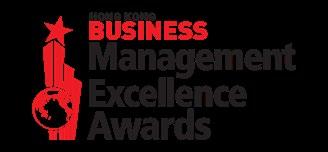


HongKongBusiness is available at the airport lounges or onboard the following airlines:








2 HONG KONG BUSINESS | Q2 2024
To send a personal message to the editor, include the word “Tim” in the subject line. Media Partnerships: Please email editorial@hongkongbusiness.hk with “Partnership” in the subject line. Subscriptions: Please email subscriptions@charltonmedia.com. Hong Kong Business is published by Charlton Media Group. All editorial is copyright and may not be reproduced without consent. Contributions are invited but copies of all work should be kept as Hong Kong Business can accept no responsibility for loss. We will however take the gains. Sold on newstands in Hong Kong, Macau, Singapore, London, and New York. *If you’re reading the small print you may be missing the big picture HONG KONG BUSINESS FROM THE EDITOR PUBLISHER & EDITOR-IN-CHIEF Tim Charlton ASSOCIATE PUBLISHER Louis Shek EDITORIAL MANAGER Tessa Distor PRINT PRODUCTION EDITOR Eleennae Ayson LEAD JOURNALIST Noreen Jazul PRODUCTION TEAM Diana Dominguez Frances Gagua Olivia Tirona
Villegas EDITORIAL RESEARCHER
GRAPHIC ARTIST
Engracial COMMERCIAL TEAM
Posadas ADVERTISING
Vann
Angelica Rodulfo
Simon
Janine Ballesteros Jenelle Samantila Cristina Mae
CONTACTS Louis Shek +852 6099 9768 louis@hongkongbusiness.hk Shairah Lambat shairah@charltonmediamail.com AWARDS Julie Anne Nuñez awards@charltonmediamail.com ADMINISTRATION Eucel Balala accounts@charltonmediamail.com EDITORIAL editorial@hongkongbusiness.hk




HONG KONG BUSINESS | Q2 2024 3 CONTENTS 3 HONG KONG BUSINESS | JANUARY 2019 Published Quarterly by Charlton Media Group Pte Ltd, Room 1006, 10th Floor, 299QRC, 287-299 Queen’s Road Central, Sheung Wan, Hong Kong For the latest business news from Hong Kong visit the website www.hongkongbusiness.hk FIRST STARTUP EVENT SPACE WATCH PROPERTY WATCH CEO INTERVIEW INDUSTRY INSIGHT FINANCIAL INSIGHT ANALYSIS 36 COVER STORY FOODTECH AND FINTECH EMERGE AS BRIGHT SPOTS IN HONG KONG’S STARTUP LANDSCAPE MBA PROGRAMMES SURVEY MBA PROGRAMMES ATTRACT GLOBAL TALENT AND BOOST FEMALE ENROLLMENT 41 52 EVENT HONG KONG’S MOST EXCEPTIONAL INNOVATORS CELEBRATED AT HKB HIGH FLYERS AWARDS 2024 06 3 key strategies for Hong Kong retailers to amplify sales in 2024 07 Cooling measures rollback fails to stop housing market decline 54 Visionary leaders and enterprises lauded at Hong Kong Business Awards 20 Trip.com innovates workspace with fun features to boost employee morale 22 New eco-haven AIRSIDE boasts urban farm, smart bike parking system and more 18 inRiskable streamlines SME credit assessment for banks through AI 24 Endowus challenges commission biases in Hong Kong's financial advisory scene 26 Travel insurance sales in Hong Kong soar after unprecedented holiday boom 46 Why HK investors flock to Thailand's residential market 47 Tax incentives may not be enough for Hong Kong's global maritime hub goals 32 VC deals plunge as profitability questions loom 34 Hong Kong banks should play ‘long con’ to reap 2025 growth benefits BRIEFING 12 Government scraps MPF Offsetting Scheme to enhance employee protection 14 What does retail trading of tokenised securities mean for HK's Web 3.0 scene? 16 Retailers are urged to view returns management as loyalty drivers
News from hongkongbusiness.hk
Daily news from Hong Kong
MOST READ

MARKETS & ECONOMY
10 investment ideas for 2024
Anticipating the volatility in public markets in 2024 due to prolonged periods of rising interests, experts make a compelling proposition to invest in private and alternative assets. Some investors already see this as a strategic move to sidestep the more obvious jitters.

MARKETING
‘Emotional loyalty,’ the new way retailers retain customers
Loyalty programmes tend to focus on “transactional loyalty” or rewarding customers as they make purchases. But in Hong Kong, where almost half of consumers want to actively engage with brands, experts suggest that companies also prioritise building of “emotional loyalty.”

LEGAL/PROFESSIONAL SERVICES
Hong Kong’s most influential lawyers under 40
This year’s awardees specialise in international trade, restructuring and insolvency, commercial dispute resolution, banking and finance, aviation, commodities, energy, family and matrimonial law, and more. After a rigorous review, four women and six men made it to the final cut.

STARTUP
Ticketing and membership platform extends customer journeys through
In a traditional Web 2 ticketing platform, a customer’s journey ends after the event, leaving organisers unable to build loyalty or relationships with their attendees. In order to change that, Jonathan Mui and Peter Hui built an NFT ticket and membership platform called Moongate.

INSURANCE
Hong Kong’s top 50 insurers experience 7.7% YoY premium contraction in 2022
The premiums of Hong Kong’s top 50 insurers contracted by 7.7% year-onyear (YoY) in 2022, on the back of lower demand for linked products, decreased population size, and market uncertainty. In total, the top 50 companies saw their premiums reach HK$511.7b, smaller than the HK$554.2b in 2021.

COMMERCIAL OFFICE
Lodes flips the switch at new Hong Kong office to turn on creative minds
In its Hong Kong office, Lodes employs its innovative lighting solutions to serve a dual purpose: showcase products to clients and foster employee creativity. The Venice-based lighting solutions brand underscores the role of lighting environments in stimulating creative thought in indoor settings.



Vastcom's C.E.S.F,
powered by Check
Point, boosts stakeholder visibility and cybersecurity
By protecting company assets, we strengthen trust, safeguard operations, and pave the way for a secure digital future.

In today's cyber threat landscape, companies need top-notch cybersecurity. Next, we will discuss the significance of cybersecurity protection, the growing importance of visibility for C-level executives, and how Vastcom, in collaboration with Check Point Software, is enhancing company visibility and fortifying cybersecurity through their expert services and the Check Point Enterprise Security Framework (C.E.S.F).
Check Point Software Technologies: Leading the Way in Cybersecurity
Check Point Software Technologies is a renowned cybersecurity company that provides industry-leading solutions to protect organisations worldwide against cyber threats. With a focus on innovation and security excellence, Check Point is committed to delivering cutting-edge technologies to safeguard businesses in today's digital landscape.
Vastcom Technology Limited: Your Trusted Check Point Solution Partner
In the digital age, cybersecurity is not just a concern—it's a necessity. Vastcom Technology Limited, founded in 2010, is at the forefront of cybersecurity solutions, with a strong focus on customer satisfaction. With offices in Macau, Hong Kong, Zhuhai, and Singapore, Vastcom offers a wide range of products and services tailored to assist customers in their digital transformation journey.
The Alarming Rise of Cybercrime
Recent years have witnessed a staggering surge in cybercrime incidents, affecting businesses of all sizes across various industries. Hackers, armed with sophisticated tools and techniques, exploit vulnerabilities in digital systems, causing financial losses, reputational damage, and compromising sensitive data. The consequences of such attacks emphasise the need for comprehensive cybersecurity measures.
The Importance of Cybersecurity Protection
Cybersecurity protection is no longer an optional investment but a critical necessity for companies. It encompasses a range of practices, technologies, and strategies aimed at safeguarding digital assets, infrastructure, and customer data. A robust cybersecurity framework serves as a shield against cyber threats, ensuring business continuity, trust, and compliance with regulatory requirements.
The Role of Visibility for C-Level Executives
In the face of growing cyber threats, C-level executives are increasingly realising the importance of cybersecurity visibility. They understand that a lack of visibility into the organisation's cybersecurity posture can lead to severe consequences. By having a clear understanding of the company's security landscape, executives can make informed decisions, allocate resources effectively, and proactively mitigate risks.
Vastcom's Expert Services and Check Point Software
Vastcom, a leading cybersecurity solutions provider and the highest-tier partner of Check Point in Macau, has partnered
In the digital world, comprehensive cybersecurity is not just important for your company—it is imperative. By prioritizing the visibility of your business in cybersecurity, you establish the foundation for trust, protect your assets, and safeguard your future in the ever-evolving landscape of technology.
with Check Point Software to enhance company visibility and fortify cybersecurity measures. Their team of experts brings years of experience, knowledge, and cutting-edge technologies to deliver comprehensive services, including risk assessments, vulnerability management, incident response, threat intelligence, and security awareness training, empowering organisations to achieve cybersecurity excellence through the Check Point Enterprise Security Framework (C.E.S.F).
Check Point Enterprise Security Framework (C.E.S.F)
At the heart of Vastcom's approach to enhancing company visibility and security lies the Check Point Enterprise Security Framework (C.E.S.F). This framework provides a holistic and integrated approach to cybersecurity, enabling organisations to strengthen their security posture. C.E.S.F addresses key areas such as network security, cloud security, mobile security, endpoint security, and IoT security. By adopting this framework, companies can achieve a unified and proactive security approach.
Enhancing Company Visibility and Security
Vastcom's collaboration with Check Point Software empowers companies to strengthen their visibility and increase their security levels. By leveraging Vastcom's expert services and the C.E.S.F, organisations can identify vulnerabilities, detect and respond to threats in realtime, and establish a robust security infrastructure. The comprehensive risk assessments and vulnerability management provided by Vastcom enable companies to proactively identify and address potential weaknesses.
Conclusion
In the face of the escalating cyber threat landscape, companies must prioritize cybersecurity protection and visibility. Vastcom's expert services, powered by the Check Point Enterprise Security Framework, provide a comprehensive solution to enhance company visibility and fortify cybersecurity measures. By adopting these services, organizations can mitigate risks, protect sensitive data, and maintain business continuity in the digital age. With Vastcom and Check Point Software as trusted partners, companies can confidently navigate the complex world of cybersecurity and emerge stronger against evolving cyber threats.
HONG KONG BUSINESS | Q2 2024 5
AI DEMOCRATISATION Outsta d g Enterpises

3 key strategies for Hong Kong retailers to amplify sales in 2024
Hong Kong's retail sector is witnessing a robust recovery with a 7.2% increase in sales compared to the previous year, prompting experts to recommend innovative strategies to maintain this growth. Emphasising the use of generative AI, livestreaming, and an omnichannel approach, e-commerce provider SHOPLINE outlines key tactics for retailers to enhance customer engagement and sales.
Strategy 1 AI-assisted chat
Utilising AI through a message centre can handle and consolidate incoming chats from all social platforms can reduce the working load on customer service representatives. WhatsApp, Facebook, and Instagram.
With SHOPLINE, merchants are allowed to upload store-specific information, such as return policies and business hours, to its AI Database. The AI assistant will then provide suggested replies, accelerating productivity and improving conversion rates.
SHOPLINE reported that 77% of customers place orders successfully after receiving salesrelated messages through chat.
"Recently, consumers in Hong Kong have increasingly preferred using instant messaging applications to communicate with merchants. The introduction of Gen AI can eliminate long waiting times and avoid generic responses," SHOPLINE added.
Strategy 2 Livestreaming
SHOPLINE underscored that, on average, consumers in Hong Kong spend nearly two hours daily using social media platforms.
Hopping on the livestream selling trend, SHOPLINE began supporting YouTube Shopping, enabling merchants to use the YouTube platform for marketing, which
showed favourable results, driving merchants’ GMV and website traffic.
"Since its introduction to SHOPLINE, YouTube Shopping has proven its value in supporting business success. In one case, live streaming has contributed to over 30% of a merchant’s GMV and has been responsible for driving 23% of their website traffic," SHOPLINE shared.
According to data analysed from the e-commerce platform, livestream sales in Hong Kong were most significant during the year-end shopping peak season, with conversion rates ranging from 50% to 70%.
In 2024, the 15-day period leading up to Chinese New Year is a peak shopping period.
Year-on-year comparisons of the week preceding Chinese New Year have shown that merchants who sell Chinese New Year products experienced a 15% annual increase in GMV, said SHOPLINE.
Many customers also utilised livestream shopping to purchase some of the top 10 New Year goods for 2024, which include radish cake, red date cake, and taro cake.
In addition, merchants who sell seafood products and Chinese New Year goods achieved seven-figure revenue through livestreaming alone.
Strategy 3 Omnichannel
According to SHOPLINE, many Hong Kong residents flocked to membership warehouse clubs and mega malls in Shenzhen, such as Sam's Club and Costco, in search of slashed prices and bulk-buy deals.
SHOPLINE also observed that its merchants have started offering personal shopping services for Sam's Club products, with electronic appliances being particularly popular amongst Hong Kong consumers.
"Between December 25th 2023 and January 28th 2024, the average year-on-year GMV growth of merchants providing Sam’s Club purchasing services increased by 25%. Among them, some merchants recorded a year-on-year GMV growth of nearly 40%, whilst some others have been able to achieve six-digit revenues," the platform reported.
To take advantage of this trend, SHOPLINE merchants implemented an OMO (Online Merge Offline) strategy, integrating digital storefronts with physical stores which bolstered their average YoY sales growth to 1.7 times.
Live streaming has contributed to over 30% of a merchant’s GMV and has been responsible for driving 23% of their website traffic
6 HONG KONG BUSINESS | Q2 2024 FIRST
An order management system can be made more dynamic with an OMO (Online Merge Offline) strategy (Photo from Shopline)
RETAIL
Cooling measures rollback fails to stop housing market decline
Hong Kong’s withdrawal of all property cooling measures in the residential property market is expected to lead to a significant sales increase. Despite these changes, which include the removal of multiple stamp duties, analysts predict only a modest boost in sales and caution that the overall downward trend in housing prices is likely to continue due to high interest rates and a sluggish economy.
In the 2024 Hong Kong budget speech, Financial Secretary Paul Chan unveiled a full roll-back of property cooling measures. These include the special stamp duty (SSD)
of 10% to 20% if owners resell their units within 2 years; the Buyer’s Stamp Duty (BSD) or an additional 7.5% for non-Hong Kong and company buyers; and the New Residential Stamp Duty (NRSD) of HK$100 to 4.25% of the property value.
The move may lead to a 10% to 15% sales increase in 2024, says JLL Hong Kong chairman Joseph Tsang.
Still, Tsang expects housing prices will still fall by 10% as the market continues to grapple with high interest rates and a weak economy.
“Currently, there is a potential new housing supply of 109,000 units, which poses pressure
Commercial property woes weigh on Hong Kong banks
The ongoing office and retail property market woes in Hong Kong will weigh on local banks’ asset quality challenges in 2024, says Fitch Ratings.
However, the expected receding risks in the banks’ mainland China property portfolio will help offset impact and drive a modest decline in credit costs.
“We expect the impact on the banks’ asset quality and profitability from strains in the local CRE market to be more muted than in the previous two years when they had to make considerable provisions against their exposures to mainland China’s property sector,” Fitch Ratings said.
Banks are mitigating risks in the commercial real estate (CRE) sector by requesting additional credit enhancements from borrowers, whilst also maintaining conservative loan-to-value (LTV) ratios, the ratings agency said. Fitch estimates that the average LTV ratio is less than 50% for all commercial property-
backed loans amongst its rated banks.
“This conservative approach should enable the banks to withstand potential valuation deterioration in collateralised commercial properties this year, limiting the increase in credit costs, in our view,” Fitch said.
Risky investment
As of September 2023, lending to property development and investments made up 15.7% of banks’ total loans, and 5.9% of total assets, according to Fitch.
Meanwhile, the risk in unsecured loans will depend on the borrowers’ financial strength and access to alternative cash flows.
“[But] these loans are typically only granted to those with diversified rental income streams that could help them weather a potential downturn in a single CRE segment such as the office market,” Fitch noted.
on developers. It is expected that developers will accelerate their pace of launching new projects,” Tsang said.
Colliers’ head of research Kathy Lee noted that the positive impact from the policy will only become more evident in H2 2024, with housing prices rising by 5% to 10% in 2025.
Gradual rebounding
The withdrawal of cooling measures may also lift the second-hand residential market, with transaction volumes likely to rebound to 63,000 units for 2024, around the same level as in 2017 to 2021, Lee said.
CBRE’s head of research Marcos Chan also expects recovery of transaction volumes to be gradual.
“We believe this is seen as a positive move and will likely create positive momentum for the market, however, any pickup in transaction volume will be gradual as high borrowing rates remain a hurdle for many commercial investment activities - rental recovery and vacancy improvements remain the key for a more sustainable recovery in investment demand,” Chan said.
Short term pause
Meanwhile, after declining for 9 consecutive months, the downward trend in residential prices will likely pause and stabilize in the short term, said CBRE
Hong Kong senior director for valuation & advisory services Eddie Kwok.
Kwok, like Colliers’ Lee, expects that the removal of special stamp duty (SSD) to spur second hand-units to be put up for sale.

HONG KONG BUSINESS | Q2 2024 7
FIRST
RESIDENTIAL PROPERTY BANKING Price index Rental index (fresh lettings) 0 50 100 150 200 250 300 350 400 450 2013 2015 2017 2019 2021 2023 Year Index (Year 1999=100) 0 50 100 150 200 250 300 350 400 450 1/22 4/22 7/22 10/221 /234 /237 /231 0/23 Month/Year Index (Year 1999=100 ) Price and rental indices of private domestic units
Source: Hong Kong Monthly Digest of Statistics March 2024, Census and Statistics Department
Source: Fitch Ratings, Hong Kong Rating and Valuation Department, JLL
Hong Kong private office market
FIRST THESE ARE THE BEST AND WORST PERFORMING SECTORS IN HONG KONG ACCORDING TO STAN CHART’S SME INDEX NUMBERS
The “HKPC SME Support” announced the Standard Chartered SME Index for Q1 2024. According to the report, the overall index retreated by 3.9 to 43.7 in Q1 2024.
Of the five component subindices, only Investment Sentiment remained stable (48.8) whilst Profit Margin, Business Condition, Global Economy, and Recruitment Sentiment all declined, representing a weakened confidence in SMEs’ Q1 2024 business turnover.
In 11 business sectors, Finance and Insurance produced the best performance in Q1. This is followed by Social and Personal Services, according to the report.
In contrast, larger drops were recorded for Accommodation and Food Services, Import / Export Trade and Wholesale, Professional and Business Services, Information and Communications and Retail.




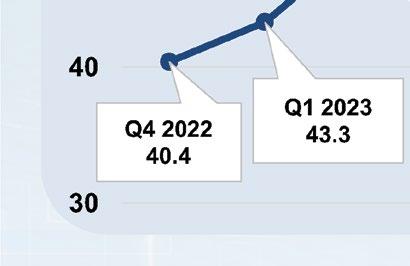















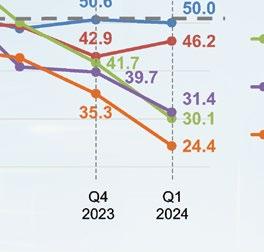



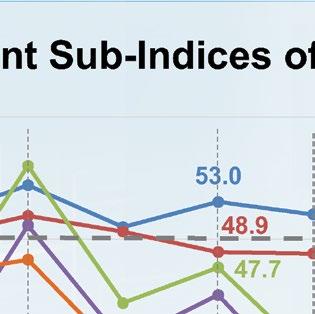
















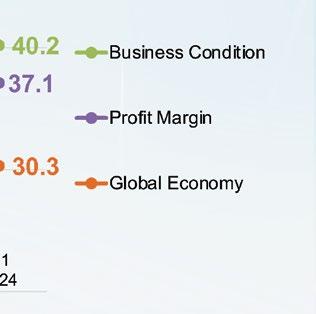







8 HONG KONG BUSINESS | Q2 2024
Source: Standard Chartered Hong Kong SME Leading Business Index Quarter 1, 2024













HONG KONG BUSINESS | Q2 2024
How to turn online window shoppers into sales
Discover the essential strategies to convert casual browsers into committed customers in the digital marketplace.

In the bustling world of e-commerce, it’s not enough just to capture the attention of shoppers. You also need to convert them into buyers. Just like in-store shopping, potential customers will browse your online products to see if anything catches their eye. Some may even click the ‘add to cart’ button. However, until the sale has been completed, there’s still the possibility that your would-be customer abandons their cart.
There are a number of factors that determine whether those online window shoppers will ultimately complete their purchase. Here’s how you can create an online customer experience that increases the chances of conversion.
Understand your audience
The first step is knowing who's browsing your online store. You can then craft a customer experience that takes into account their desires and expectations. Recent trends show a significant shift towards online shopping, with a notable preference for trying new brands. This trend is largely driven by the 'Discovery Generation'—consumers who are inspired by digital discovery and are open to exploring new products through online experiences.
Offer flexible shipping options
Consumers desire flexibility in how they receive their products. The absence of
options like click-and-collect, flat-rate shipping or curbside pickup can lead to cart abandonment. In fact, 57% of shoppers in the Asia Pacific region say they would swap retailers if they were not provided flexible shopping options. Providing various delivery choices caters to individual preferences, making the purchase decision easier for your customers.
Guarantee quick and on-time delivery
A common reason for brand switching is the anticipation of faster delivery elsewhere. 51% of e-commerce customers in Southeast Asia have switched brands for reasons including faster delivery time. Ensuring your logistics can meet or exceed customer expectations for delivery speed is essential. This builds trust in your brand’s efficiency and increases the likelihood of retaining customers.
Prioritise value and reliability
Customers are looking for value for their money and reliable service. Implementing cost-effective shipping solutions that do not compromise on service quality is key. Working with a trusted logistics partner like FedEx can enhance your delivery services,
offering both savings and reliability to you and your customers.
Embrace technological solutions
New technologies are making it easier than ever for e-commerce retailers to streamline their operations and improve their shipping services. FedEx, for instance, provides solutions that offer online tracking and digitised customs clearance, giving both you and your customers greater control and convenience.
Create a seamless e-commerce experience
The goal is to make every aspect of the online shopping experience – from browsing to receiving the product –smooth and easy. Integrating services that automate processes like shipping label creation makes your fulfillment of orders more efficient. This translates into a customer experience that’s intuitive and encourages self-service.
Building trust through transparency
Offering a transparent process where customers can easily track their orders and receive updates enhances customer satisfaction. This level of visibility and communication fosters a sense of security and trust in your brand.
Converting window shoppers into loyal customers in the e-commerce world requires flexibility, speedy logistics, technological integration and exceptional customer service. By understanding and implementing these key strategies, small businesses can enhance their online presence, offering a shopping experience that meets the high expectations of today's consumers.
Partnering with FedEx for logistics solutions can further streamline your operations, ensuring your products reach your customers efficiently, wherever they are in the world. Discover more tips to develop a winning e-commerce customer experience on the FedEx Small Business Center
Partnering with FedEx for logistics solutions can further streamline your operations, ensuring your products reach your customers efficiently, wherever they are in the world
10 HONG KONG BUSINESS | Q2 2024
THOUGHT LEADERSHIP ARTICLE
Turn browsing into buying with tailored experiences and seamless delivery.















HONG KONG BUSINESS | Q2 2024 11
Government scraps MPF Offsetting Scheme to enhance employee protection
Employers are no longer allowed to offset long service and severance payments from its contributions.
For decades, Hong Kong’s Mandatory Provident Fund Offsetting Scheme has been a subject of countless debates, with critics condemning how employees appear to be cheated out of their hard-earned money because employers are allowed to draw from their pensions to offset severance and long service payments.
This all ends in 2025 when the government greenlights the motion to finally abolish the scheme.
Under the Employment and Retirement Schemes Legislation (Offsetting Arrangement) Bill 2022, employers will no longer be able to use accrued benefits derived from the employer’s mandatory pension contributions to offset employee statutory severance and long service payments.
Breaking down the legal aspects of the proposed amendment, Tess Lumsdaine, partner at Baker McKenzie’s Employment & Compensation Practice in Hong Kong, explained the details in an interview with Hong Kong Business “By way of background, under the Employment Ordinance (EO), an employee with at least 24 months’ continuous service is entitled to a statutory severance payment (SP) if the employee is made redundant,” said Lumsdaine. This SP is meant to function as interim financial support whilst an employee transitions to new employment.
She continued to elaborate on the long service payment (LSP) provision, saying: “An employee with at least five years’ continuous service is entitled to a statutory long service payment if the employer terminates the employment contract for reasons other than redundancy or summary dismissal.”
Calculating contributions
The SP and the LSP are calculated in the same way. For a monthly rated employee, the calculation is: 2/3 x last full month’s wages (capped at $22,500 or US$2,876) x years of service pro rata for any incomplete year of service.
When it comes to MPF contributions, employees earning at least $7,100 (US$907) per month, along with their employers, must make mandatory contributions to the employee’s MPF of 5% of the employee’s relevant income capped at $1,500 (US$192) each for employer and employee.
“Employers and employees may also make voluntary contributions, subject to the governing rules of the relevant scheme,” Lumsdaine said.
“At the moment, there is an offsetting mechanism under the existing arrangements where employers can use the accrued benefits derived from the employer’s (not the employee’s) MPF contributions to reduce the employee's statutory SP or LSP entitlements,” she added.
Employers will have to adjust
“To reduce the risk of large-scale dismissals before the Transition Date, a grandfathering arrangement has been put in place,” Lumsdaine said.
Addressing this, the Labour Department said, “to assist employers, especially micro, small and medium-sized enterprises, to adapt to the policy change, the Government



is pressing ahead with the implementation of a 25-year Government Subsidy Scheme to share out employers’ SP and LSP expenses after the abolition.”
“The Labour Department will continue to conduct extensive publicity to help employers and employees understand the arrangements of the abolition and the Government Subsidy Scheme,” it said.
Lumsdaine explained that for the pre-transition date portion, “employers can continue to use the accrued benefits derived from the employer’s MPF contributions to offset SP and LSP entitlements before the Transition Date.
She said this is irrespective of whether the employer contributions are voluntary or mandatory.
An employee with at least 24 months’ continuous service is entitled to a statutory severance payment if the employee is made redundant
Ensuring balanced labour welfare
“With the removal of the offsetting arrangement, Hong Kong has taken a great step forward towards better employee protection. Employees’ benefits in their MPF/ORSO schemes will not decrease after the Effective Date even if they are dismissed or laid off,” Rosanna Chu, managing partner for EY Hong Kong firm, LC Lawyers, said in a report.
“While the abolition will inevitably increase the costs of operation, it is good news for employers that the abolition arrangement will not have any retrospective effect,” Chu added.
12 HONG KONG BUSINESS | Q2 2024 HR BRIEFING
MPFA hosts awareness campaigns to orient workers and social enterprises of the new programme (Photos from MPFA)
HR & EDUCATION
Tess Lumsdaine
Fidelity MPF
Your ultimate choice

At Fidelity, we have a forward-looking vision to help empower our clients to take charge of their investments and build a nest egg through digitalisation and retirement planning education. Our commitment has been recognised by industry awards and accolades over the years.
Fidelity MPF
Outstanding investment capabilities
“The 2024 MPF Awards” by MPF Ratings
Gold Rated Scheme for 12 consecutive years1
Retirement solutions tailored to members
“The 2024 MPF Awards” by MPF Ratings
Best MPF Post-Retirement Product 3
Dedicated investor education
“The 2024 MPF Awards” by MPF Ratings
Best Communication & Education for 8 consecutive years2
Commitment to business innovation
Hong Kong Business High Flyers Awards 2024 Financial Services4

Fidelity Investor Hotline: 2629 2629
Fidelity.com.hk/awards
The above awards are for reference only. It is not indicative of the actual performance of the constituent funds. For the award information details, please refer to https://www.fidelity.com.hk/awards.
1 Fidelity has won Gold Rated Scheme from MPF Ratings for 12 consecutive years during the period of 2013 to 2024 - the rating(s) only represent MPF Ratings’ assessment standard (for details, please visit: https://mpfratings.com.hk/ratings-methodology/).The results are based on the investment choices and performance, fees and charges and qualitative assessment of an MPF scheme as of 31/12/2012, 31/12/2013, 31/12/2014, 31/12/2015, 31/12/2016, 31/12/2017, 31/12/2018, 31/12/2019, 31/12/2020, 31/12/2021, 31/12/2022 and 31/12/2023.
2 Fidelity has won Best Communication and Education Award from MPF Ratings for 8 consecutive years during the period of 2017 to 2024 - the award(s) only represent MPF Ratings’ assessment standard (for details, please visit: https://mpfratings.com.hk/awards-methodology/). The results are based on the assessment across the various communication and education criteria of an MPF scheme as of 31/12/2016, 31/12/2017, 31/12/2018, 31/12/2019, 31/12/2020, 31/12/2021, 31/12/2022 and 31/12/2023.
3 Fidelity has won Best MPF Post-Retirement Product in 2024 from MPF Ratings - the award(s) only represent MPF Ratings’ assessment standard (for details, please visit: https://mpfratings.com.hk/ awards-methodology/). The results are based on the assessment on the post-retirement initiatives of an MPF scheme as of 31/12/2023.
4 The award only represents Hong Kong Business Magazine's standards for innovative business practices, outstanding quality of service, and relentless efforts to contribute towards social progress and business growth. The results are based on the assessment across nominations of financial services industry as of 31/10/2023.
Investment involves risks. Past performance is not indicative of future performance. Please refer to the Key Scheme Information Document and MPF Scheme Brochure for Fidelity Retirement Master Trust for further information including the risk factors. Fidelity, Fidelity International, the Fidelity International logo and F symbol are trademarks of FIL Limited. FIL Limited and its subsidiaries are commonly referred to as Fidelity or Fidelity International. Fidelity only gives information about its products and services. Any person considering an investment should seek independent advice on the suitability or otherwise of the particular investment. The third party mark appearing in this material is the property of the respective owner and not by Fidelity. This material is issued by FIL Investment Management (Hong Kong) Limited and has not been reviewed by the Securities and Futures Commission.
HONG KONG BUSINESS | Q2 2024 13
What does retail trading of tokenised securities mean for HK's Web 3.0 scene?
Previously, only professional investors were permitted due to the assets' novel nature.
As Hong Kong pushes forward with the development of the Web 3.0 ecosystem, retail investors can now participate in boosting its growth by gaining access to tokenised securities.
This access remains limited, however; as secondary market trading of tokenised securities amongst retail investors is still prohibited.
“One of the key elements of the Web 3 ecosystem is the adoption of blockchain technology, and, consequentially, the circulation of virtual assets,” said Katherine Liu, a partner and head of Fintech and Financial Services at Stephenson Harwood, when interviewed by Hong Kong Business. “By making virtual assets becoming more accessible to the public, the Hong Kong government is definitely taking positive steps in encouraging Web 3 development.”
Previously, the Securities and Futures Commission of Hong Kong (SFC) only allowed the issuance of tokenised securities to professional investors, partly because they were regarded as a novel asset class at that time and hence the product nature might be too complex for retail investors to understand.
But under SFC’s updated regulatory framework for security token offerings (STOs), this shall no longer be the case.
Padraig Walsh, partner at Tanner De Witt, said the issuance of tokenised securities follows a “same product, same risk, same regulation” principle, meaning existing regulatory requirements will apply to these products including the prospectus and investment public offering regimes, with additional requirements applied only to account for the tokenisation process.
“Regulated intermediaries engaged in regulated activities related to tokenised securities must fulfil existing conduct requirements for securities-related activities,” said Walsh.
“Primary dealing of tokenised SFC-authorised investment products can only proceed if the underlying product can meet the usual product authorisation requirements,” he explained.
Walsh highlighted that whilst traditional securities regulations apply to tokenised securities, the SFC has implemented extra internal controls to mitigate the unique risks of tokenisation technology and token ownership management.
Ownership and technology risks
To address ownership risks or how tokenised securities are transferred and recorded and technology risk such as blockchain network outages and cybersecurity risks, SFC has laid out several measures.
According to Walsh, the SFC circulars issued November 2023 provide that “intermediaries must conduct due diligence on the technology aspects of tokenised securities” and “must have the necessary resources to understand and manage ownership and technology risks.”
Intermediaries include virtual asset trading platform operators, virtual asset fund managers, virtual asset dealers and advisers, and virtual asset distributors.
Alan Wong, an associate at Stephenson Harwood,



clarified that only licensed corporations who have notified and received the SFC’s approval in carrying out restricted virtual assets-related activities are covered by the commission’s virtual asset regulations. Other licensed corporations are not permitted to undertake such restricted virtual assets-related activities.
Under SFC’s circulars, Walsh said intermediaries must also look into the investors’ experience and track record, as well as money laundering and terrorist financing risks, when dealing tokenised securities.
“Dealers, advisers and fund managers investing in tokenised securities must also conduct due diligence on the issuers and their third-party vendors or service providers involved in the tokenisation arrangement, as well as the features and risks of the tokenisation arrangement,” he said.
Regulatory standards
The SFC will aslo also implement a higher regulatory standard if product providers propose to use publicpermissionless blockchain networks. The SFC will expect additional controls and must address and mitigate heightened cybersecurity threats, data privacy concerns, system outages, and recovery issues, whilst also maintaining a thorough and effective business continuity plan. The generally preferred approach will be using permissioned networks.
“Product providers should confirm to the SFC that they have at least one competent staff with relevant experience and expertise to operate and supervise the tokenisation arrangement, and to manage the ownership and technology risks arising from the tokenisation arrangement,” Walsh explained to Hong Kong Business.
In the case of a loss of security tokens, Walsh said responsibility will depend “on the circumstances at the time.”
“The regulatory framework is focused on the measures that intermediaries must take to mitigate the risk of loss of security tokens. Responsibility for loss is a fact-specific issue that is not addressed in the regulatory framework,” Walsh said.

14 HONG KONG BUSINESS | Q2 2024 LEGAL BRIEFING
the Securities and Futures
only
STOs to professional investors
its novel and complex product nature
Responsibility for loss is a fact-specific issue that is not addressed in the regulatory framework Previously,
Commission
issued
due to
Katherine Liu
Padraig Walsh
Alan Wong
FINANCIAL SERVICES

HONG KONG BUSINESS | Q2 2024 15
Retailers are urged to view returns management as loyalty drivers
15% of customers abort a transaction if the return policy is subpar.
Returns management is now emerging from the shadows to claim its rightful place as a core element of any retailer’s customer strategy, as trends show that it is one of the most effective means of retaining customer loyalty and satisfaction.
However, some retailers still choose to shelve this concern, resulting in a disorganised or dysfunctional system.
“The industry needs to shift its mindset from viewing the return experience as a revenue drain to seeing it instead as a loyalty driver,” Michelle Evans, global lead for Retail and Digital Consumer at Euromonitor International, shared in an interview with Hong Kong Business
How to handle returns
Returns can be prompted by a variety of reasons but one thing’s for sure: a returned item came from an unhappy customer. To counter this, retailers must deploy strategies that would work best for their brand.
For example, Evans said that for some brands, offering their customers generous compensation has proven to be an effective approach in retaining the customers' patronage.
“Innovative retailers can create returns policies that offer more generous terms on higher margin goods. For example, US-based retailer Target offers a more lenient return policy on its 45 store brands,” she told Hong Kong Business
“Another option is to offer a more favourable returns policy as part of a loyalty membership programme to reward those who regularly shop with the brand,” she added.
Greg Buzek, president and lead analyst of global market research and analyst firm IHL Group, suggested that encouraging customers to return items in-store is also a good strategy as customers may be prompted to buy more items.
Euromonitor’s Voice of the Consumer: Digital Survey showed that 43% of digital consumers point to mail as the preferred channel for online purchase returns, with preferences varying by generation. For example, Baby Boomers prefer to return by mail, whilst Gen Zs prefer to return their previous purchases in-store.
“Though on the decline, half of digital consumers desire free returns, citing it as the most preferred delivery feature only after free delivery (63%). 15% say they will abort a transaction if the return policy is subpar. In addition, consumers value prompt refunds,” Evans said.
Third-party services
In mitigating the overwhelming stress brought about by returns, Buzek also suggested exploring innovative systems and "leveraging a trusted third-party service that can help design and execute the reverse logistics process.”
Commenting on this, Evans said: “Other retailers, especially in Europe, participate in an open locker network to make delivery and returns more convenient and cost-effective.
To achieve a successful returns management system, retailers should be able to balance the benefits to themselves and the customer.

Evans cited samples from some renowned global retailers, “TJ Maxx, Zara and H&M are charging a nominal fee of US$2-US$12 for returns to offset the expense,” she added “some retailers have [also] shortened the return window to discourage return fraud, and incentivise customers to opt for an exchange or store credit.”



“By offering seamless, free-of-charge returns and prioritising swift refund processing, e-commerce companies can enhance customer loyalty and differentiate themselves in a competitive market,” she said.
Optimizing omnichannel solutions
To cater to the ever-evolving digital sphere, Buzek highlighted the importance of data and analytics to determine the optimal price, channel, and timing for reselling or liquidating the returned items.
Buzek affirmed that the use of AI-powered features in retailers' digital platforms such as “true-fit sizing technology, virtual try-ons, and chatbots can help customers make better purchasing decisions and reduce returns.”
In Asia, Thailand-based fashion brand POMELO embraces technology in developing a seamless supply chain management system through its Tap.Try.Buy feature.
“In POMELO we have an omni-channel approach that we call Tap.Try.Buy. We allow customers to select online in their application item that they want to try on, select the store that they would like to try and get it delivered to the store [which] the customer can try within 24 hours,” explained Lai Tze Siung, chief logistics officer at POMELO Fashion.
With the Tap.Try.Buy feature, customers can try on their desired item at preferred stores where they can either choose to buy it or leave it at that store. This enables POMELO to complete a whole purchasing cycle within 24 hours.
16 HONG KONG BUSINESS | Q2 2024
MARKETING BRIEFING
Processing returns in-store may prompt customers to buy additional items
Michelle Evans
Greg Buzek
Lai Tze Siung
RETAIL | by Diana Dominguez
From dreaming about your children’s future

to securing a legacy for themº


Protect your wealth for the next generation
With our 160-year heritage across a global network, clients trust us to manage their wealth so they can leave a long-lasting legacy for the next generation. From here, possibilities are everywhere.

New clients signing up for Priority Banking to enjoy up to HKD22,000 cash rebate
HONG KONG BUSINESS | Q2 2024 17
IssuedbyStandardCharteredBank(HongKong)Limited
and conditions apply.
Terms
STARTUP

inRiskable streamlines SME credit assessment for banks through AI
One of the great challenges for banks these days is the accurate assessment of credit risks associated with small and medium-sized enterprises (SMEs). Screening and filtering processes may be more efficient and easier for banks with inRiskable's AI-powered solutions.
Deriving its name from a mix of the words “invisible” and “risk,” the firm co-founded by Megan Chau in 2022 helps financial institutions “discover the invisible risks [of SMEs] out there on the internet.”
“Banks always deal with a lot of SMEs. For example, 10,000 [SMEs]: ‘How can I manage 10,000 SMEs at the same time?’” Chau told Hong Kong Business. “What we’re doing is we use AI to help them to automatically filter out the high risk level and the low risk level so that
the analysts can minimise the time to do it.”
By utilising AI, the risk intelligence platform is able to minimise the amount of time and effort to exercise due diligence for SMEs. “In our experience, about 80% of the time can be reduced and our accuracy is 97%,” she said.
No wonder, the demand for such agile and reliable banking services has hit at an all-time high. Whilst the financial landscape is rapidly evolving, traditional methods of credit risk evaluation no longer suffice.
The challenge
For financial institutions, fulfilling its responsibility and task to know their customers thoroughly and ensure security has become a tall order.
Info gathering
Almost every time a bank makes an assessment, it is faced with the lack of data and reliable sources when it comes to business information. For SMEs, in particular, shared information is usually limited to financial reports and oftentimes this is not enough to fully evaluate the company’s credit risks.
“The way they’re doing it is mainly based on the financial report [of] the SME profile [of their] financial data. For example, if they want to open a bank account or if they try to request for financial service from the bank, they use the financial report to do so. But financial reports are not really often reliable or cannot reflect your credit risks in a timely manner,” Chau explained.
“Actually, they try to Google it or they try to do it in Baidu or whatever such channel they can find. But it’s not very structured, it’s not standardised and it takes a lot [of time] and a lot of effort to do so. But it’s still not reliable,” she added.
inRiskable provides the platform that bridges this information gap between SMEs and financial institutions through more efficient and accurate ways of gathering data, Chau asserted.
“We do it in a SaaS way and we’re helping financial institutions to evaluate SMEs credit risk,” she said, noting that their AI-powered solution is tailored to illuminate the obscured risks that SMEs carry — risks that often go unnoticed until they manifest into larger financial calamities.
Meat The Next’s dairy-free milk targets lactose-intolerant Asia
Believe it or not, 90 percent of the Asian population is lactose intolerant, and although alternatives like oat milk, soy milk, and plant-based milks exist, these options often have high sugar content or do not fully meet nutritional requirements.
To address this problem, Hong Kong-based startup, Meat The Next, developed the Tiger Nut Oat Soy Milk, which is made from tiger nuts, odourless non-genetically modified organism (GMO) soybeans, and oats.
Tiger nut benefits
Edmund Chan, COO and co-founder of Meat The Next, said the milk’s key ingredient tiger nuts are highly nutritious, rich in dietary fibre and healthy fats including omega-3 and omega-9, and has essential minerals like potassium, magnesium, and iron.
“Tiger nut offers several health benefits, including aiding digestion, promoting heart health, and helping to regulate blood sugar levels,” Chan explained.
Apart from being a healthier option, Meat The Next’s Tiger Nut Oat Soy Milk also helps combat desertification on a large scale and enhancement of biodiversity, said Chan.
“Tiger nuts are a valuable resource found in desert regions, and their cultivation promotes the restoration and conservation of these habitats. As we cultivate more tiger nuts, we gradually reduce the size of desert areas, allowing for the reestablishment of diverse ecosystems and the return of native flora and fauna,” Chan said.
“Just one litre of our tiger nut oat soy milk supports the cultivation of an area equivalent to that of an iPhone 14 Plus in the desert, demonstrating how even small choices can have a significant impact on biodiversity,” he told Hong Kong Business China currently has the world’s largest desertification area, spanning 2.57 million square kilometres or 26.81% of its land. Globally, 20 million hectares of farmland cease cultivation resulting in US$42b losses.


18 HONG KONG BUSINESS | Q2 2024
InRiskable founders Megan Chau and Kenyon Wong
Edmund Chan, COO and co-founder of Meat The Next
FINANCIAL TECHNOLOGY
FOOD & BEVERAGE
Supercharging the power of data with Tecsa’s OneViu retail analytics platform
Retail analytics delivers incredible insights to increase sales, reduce costs and create amazing customers experiences, but only if you can navigate your data.

In today’s digital age, many retailers feel like they are drowning in data and clutching for insights. As consumers interact with brands and retailers through numerous touchpoints, the amount of data collected by medium to large size businesses is immense. Much of this data could provide valuable insights about products, online and in-store sales, inventory and customer behaviour and preferences, but it’s often scattered across platforms and locations and never fully utilised.
The Tecsa Group helps organisations conquer this overwhelming sea of data. By transforming the way businesses access and use data, Tecsa’s OneViu platform helps retailers gather diverse information from a vast number of sources and analyse millions of transactions in real-time.
“OneViu is a decision intelligence platform that empowers retail-decision makers with direct access to data and in-depth insights, presenting a “single source of truth” so anyone in an organisation can get actionable insights and make faster, better and more profitable decisions,” says Tony Buffin, Chairman, The Tecsa Group. “By harnessing data effectively, OneViu also enables retailers to deliver personalised engaging customer experiences and boost operational performance.”
Pan-Asian success story
Earlier this year Tecsa successfully piloted OneViu in collaboration with DFI Retail Group, whose 10,700 stores across Asia include well-known brands such as Wellcome and Mannings in Hong Kong, and Giant, Cold Storage and Guardian in Singapore. Tecsa has a long-term partnership with the group, having designed and launched yuu, Hong Kong’s most popular rewards program with 4.6 million members.

”We recognise that embedding this new capability as a critical component within different DFI processes is as important as the technology itself,” adds Tim Duff, Tecsa’s Director of Retail Consulting.
The speed of adoption of OneViu continued to be strong, with over 10.8k reports run in the 10 months following its launch in February 2023.
Despite its extensive regional footprint, DFI had no unified method of analysing retail data. Like so many retailers it was capturing huge amounts of data across its businesses, but it was using several analytics solutions, each with their own proprietary tools and methodologies that slowed decision making.
Tecsa worked with DFI’s commercial teams to understand their needs and tailor the platform for their businesses and streamline and strengthen its analytics. The result is the bespoke OneViu platform that offers a 360-degree view of the retail landscape, making it easier to identify trends, understand consumer behaviour, and make fast data-driven decisions. Most importantly for DFI, the platform is putting its rich customer data at the heart of its retail strategies.
Supercharging the power of DFI’s data has already earned honours for Tecsa and DFI, with OneViu winning for Analytics – Retail in the Hong Kong Business Technology Excellence Awards 2023.
By analysing customer behaviours OneViu supports more personalised shopping experiences and identifies cross-selling and upselling opportunities. It also helps to anticipate and respond to changing customer needs by quickly recognising demand and identifying emerging trends. For example, DFI have used this capability across their brands to understand long-lasting consumer behavioral changes post-Covid.
OneViu’s cutting-edge data science and technology, provides users with answers to questions that would normally require significant analytical resources and time. After Tesca conducted training sessions, within a few hours DFI commercial team members were able to optimise their product assortments and improve merchandising strategies, and promotions.
“OneViu has been a true transformation for the DFI business. The platform has enabled us to leverage the vast data we have, in order to provide our customers with a better experience both in our stores and online, particularly when it comes to ranging and assortment,” says Danni Peirce, Chief Executive Officer 7-Eleven, DFI Retail Group.
Network of services and solutions
With a network of consultants worldwide combining global best practice with extensive local knowledge, Tecsa works with brands seeking to boost their in-house loyalty and analytics capabilities. It creates multi-partner loyalty programmes and ecosystems that expand opportunities for customer engagement.
Not only did Tecsa launch yuu, one of Asia’s most successful loyalty programs, the group also brought together some of Hong Kong’s leading brands in retail, financial services and dining as part of DFI’s “loyalty super app”. An estimated 70% of Hong Kong’s adult population uses the yuu app regularly. The concept was recently rolled out to Singapore where partners are seeing similar results.
“Over the past five years we have partnered with some of the world’s most successful consumer brands across a range of sectors including retail, fashion, QSR, financial services, travel and energy,” said Koos Berkhout, Co-Founder of Tecsa. “Across the world these loyalty programs and brand partnerships have impacted well over half a billion customers!”
Following this successful launch of OneViu, Tecsa is working with a number of companies from diverse sectors to explore the potential for the platform to unleash more opportunities to build better relationships and profitability through putting customer data at the heart of their digital and business transformation.
HONG KONG BUSINESS | Q2 2024 19
Trip.com innovates workspace with fun features to boost employee morale
It equipped its new office with height-adjustable standing desks and leisure spots, enhancing the work environment.
To break from traditional corporate environments, Trip. com's new office in Tsim Sha Tsui incorporates leisure features aimed at enhancing employee well-being and workplace satisfaction. Amongst these, the inclusion of claw machines and exercise bikes stands out, underscoring the company's commitment to fostering a stimulating and enjoyable work environment.
The decision to introduce such features was driven by the understanding that the nature of work is evolving. Today’s workforce values flexibility and well-being as much as productivity and results. Recognising this shift, Trip.com's leadership sought to create a space that not only meets the functional needs of its employees but also encourages them to engage in activities that rejuvenate their minds and bodies.
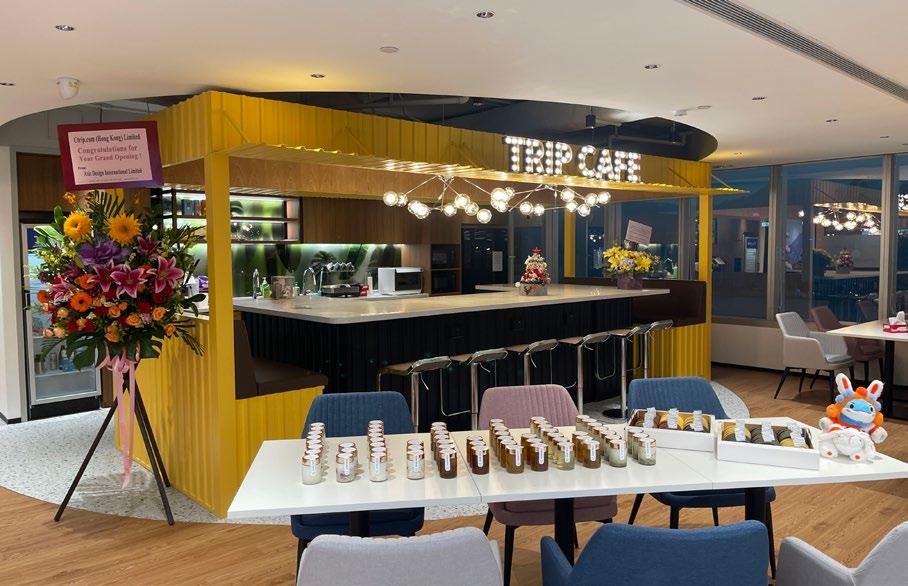



The claw machines are strategically placed within the office landscape, offering a fun and casual break for employees during their hectic schedules. This element of play not only adds a layer of excitement to the day-to-day but also serves as a tool for creative relaxation, allowing employees to return to their tasks refreshed and invigorated.
Similarly, exercise bikes provide a health-oriented diversion. Positioned to overlook the scenic Victoria Harbour, they offer an irresistible incentive for employees to step away from their desks and get moving. Physical activity helps in reducing workplace stress and promoting mental clarity, which is crucial for productivity in a fast-paced environment like Trip.com.



1 Trip.com's Trip Café
2 Trip Café
3 The
4 The
5 Private meeting areas for productive employee discussions.
6 Trip.com's office just got more fun with the addition of a new claw machine.
20 HONG KONG BUSINESS | Q2 2024
Eddy Yip
creates a home-away-from-home vibe for its employees.
conference room boasts an amazing view of the Victoria Harbour.
is the ultimate chill spot for employees.
office’s common area facilitates seamless communication amongst employees.
1 3 5 2 4 6 SPACEWATCH: TRIP.COM





New eco-haven AIRSIDE boasts urban farm, smart bike parking system and more
The commercial property supplies its F&B outlets with harvested produce from its urban farm.
Nan Fung Group’s mixed-use landmark, AIRSIDE, is charting a new course in sustainability by housing a 6,000 square feet urban farm within the mall premises that provides fresh produce to its F&B tenants.
Located on the second floor of the shopping mall, AIR FARM houses over 50 varieties of seasonal crops.
Apart from F&B tenants, AIRSIDE also shares the produce harvested from the AIR FARM to the community and charitable organisations in need to “promote a low-carbonfootprint lifestyle and nature-based solutions to the public.”
AIRSIDE also organisers regular urban farming workshops in AIR FARM for the public and its tenants.
Doing such activities allows AIRSIDE to bring its “place of wholeness” concept to life, according to Billy Hui, executive director and spokesman at Nan Fung Group.
“AIRSIDE advocates a unique urban lifestyle concept of ‘wholeness’, promoting the harmonious cohabitation of humans and nature,” Hui said.
“The architectural design and facilities of AIRSIDE draw inspiration from a seamless integration of the complex with the natural environment,” he added.
 Billy Hui
Billy Hui
Eco-haven
Showing its commitment to sustainability, AIRSIDE has dedicated one-third of its site to green spaces. On the sixth floor of AIRSIDE, there is a rooftop garden that features a variety of tropical plants and native flora.
Beyond green spaces, what AIRSIDE has that makes is sustainable are a range of innovative facilities like an Automatic Refuse Collection System, the largest office building monocrystalline PV farm and walkable PV, smart bicycle parking system, and 850 car parking spaces fully equipped with electric vehicle (EV) charging facilities.
AIRSIDE is also the first commercial development in Hong Kong to adopt the Electrical and Mechanical Services Department’s (EMSD) Kai Tak District Cooling System (DCS), Hui shared with Hong Kong Business.
“We are immensely proud of the project’s status of having earned seven highest sustainable building certifications, including Platinum WiredScore and SmartScore Certifications, and WELL Core Platinum [amongst others],” Hui said.
22 HONG KONG BUSINESS | Q2 2024
PROPERTY WATCH: AIRSIDE
COMMERCIAL PROPERTY
Rhenus Warehousing Solutions HK sets benchmark with robotics, transforming logistics landscape
With the launch of the Rhenus Innovation Hub in Hong Kong and collaborations with Geek+ and the Hong Kong Productivity Council, the company has successfully deployed state-of-the-art solutions.

Rhenus Group is a leading global logistics service provider with an annual turnover of EUR 8.6b ($73.28b). With 39,000 professionals spread across 1,120 locations worldwide, the company offers comprehensive supply chain solutions that cover transportation, warehousing, customs clearance, and value-added services. As a family-owned business, Rhenus prioritises the needs of its customers above all else and continuously strives for innovation. This commitment to excellence has solidified its reputation as a leader in the industry.
Rhenus Warehousing Solutions HK has been actively pursuing digitalisation and innovation in the logistics industry. In 2021, the company launched the Rhenus Innovation Hub (RIH) in Hong Kong as a platform for incubating innovative ideas. With the strategic partnership with Geek+ (a leading global provider of advanced robotics and artificial intelligence solutions), Rhenus Warehousing Solutions HK has successfully deployed the first AMR project, the GTP Solution with Geek+ P800 robots in Greater China.
Efficiency boost and precision enhancement
Building on the partnership with Geek+, Rhenus Warehousing Solutions HK continued their digitalisation journey with a trilateral cooperation with the Hong Kong Productivity Council (HKPC) in 2022. They brought out another smart warehouse solution project in RIH, a Goods-to-Person RobotShuttle (GRS)
solution. Distinct from the first GTP project, GRS is a “Tote-to-person” picking solution. Completed in May 2023, the project went live in mid-June and can support both B2B and B2C businesses, mainly serving Rhenus Warehousing Solutions HK’s existing fashion and cosmetics customers in Hong Kong.
The GRS project made Rhenus Warehousing Solutions HK the first warehouse in Hong Kong to deploy three different models of picking robots (Geek+ P800, RS5-DA & P40). The AMR solution eliminated the time and effort of Rhenus’ warehouse operators travelling between inventory sites and locations. It aimed to boost efficiency by 300%, whilst the Putto-Light system improved order accuracy and efficiency by using lights to guide warehouse operators to specific bin locations for picking and packing inventory, thereby reducing errors and minimising rework. The project was not only a new operational solution but also another showcase of RIH.
RHENUS WAREHOUSING SOLUTIONS HK CONSISTENTLY STRIVES TO BUILD UP COMPETENCIES TO BECOME MORE COMPETITIVE, CATCH UP WITH THE LATEST TECHNOLOGY TRENDS, AND SEIZE PROGRESSIVE OPPORTUNITIES
Flexibility and competency in a dynamic landscape:
In 2023, the same GTP solution with Geek+ P800 was implemented at Rhenus Logistics AG Switzerland. This was an example of how vision, insights, and innovative technology transition smoothly from the Rhenus Innovation Hub in Hong Kong to different locations worldwide and serves as an illustration showcasing how innovation can benefit and influence the worldwide operations of a company.
On the other hand, the company has connected with the community by collaborating with local universities and government departments. Multiple government departments have visited and explored Rhenus’ smart warehouse in Hong Kong. In June 2023, Rhenus Warehousing
Solutions HK launched its Summer Internship Programme in collaboration with the Hong Kong Polytechnic University and the Hong Kong Metropolitan University. This initiative aims to create shared value and have a positive impact through the RIH platform. For this project, the company was given the Automation – Logistics award in the recently concluded Hong Kong Business Technology Excellence Awards. Now in its fourth-year run, the awards programme recognises outstanding companies that have made exceptional contributions in the pursuit of technological innovation.
In today’s rapidly evolving and dynamic business environment, maintaining a competitive edge and flexibility are paramount. As one of the key players in the logistics industry, Rhenus Warehousing Solutions HK consistently strives to build up competencies to become more competitive, catch up with the latest technology trends, and seize progressive opportunities. The partnership between Rhenus Warehousing Solutions HK, HKPC, and Geek+ is a collaborative effort to drive digitalisation and innovative solutions. By investing in modular and scalable systems, as well as adopting cutting-edge solutions and technology, Rhenus Warehousing Solutions HK is equipped to respond to evolving customer demands and industry trends, ensuring its sustained leadership as a 3PL service provider through innovation. This approach also affords the flexibility to tailor both software and hardware solutions to address specific customer requirements and seamlessly expand operations when necessary.

HONG KONG BUSINESS | Q2 2024 23
Dennis Mak, Director, Warehousing Solutions & Distribution - Greater China Rhenus Logistics
AUTOMATION - LOGISTICS 2023
Combined photo of AMR & GRS
Endowus challenges commission biases in Hong Kong's financial advisory scene
The digital wealth advisor offers a 100% rebate on all trailer commissions.
SERVICES | by Diana Dominguez
Financial agents in Hong Kong often follow a commission-based sales model which can lead to misaligned advice and limit investors’ access to products that actually align with their investment goals. This is what pushed Singapore-based wealthtech, Endowus, to step into the market.
“Investors often end up paying high fees and hidden commissions that eat into their returns, with limited access to products that fit their investment goals due to distributors being incentivised by trailer commissions,” Gregory Van, cofounder and CEO of Endowus, told Hong Kong Business.
The reality is that individual investors face limitations in obtaining high-quality investment solutions across public and private markets, whilst institutional investors typically receive better advice and products at a lower cost. And that’s the disparity being addressed by Endowus.
“Unbiased advice and fee savings do not only solve an individual Hong Konger’s pain point but can also positively impact the greater retirement adequacy issues facing the city by helping people save and invest better for their futures,” Van said.
Endowus presents a unique value proposition that addresses these pain points. “We charge a low, transparent, all-inclusive fee that covers everything from expert financial advice to execution and rebate 100% of all trailer commissions, an industry-first move that ensures alignment with our clients,” Van said.
The platform provides professional and personalised advice in line with the client’s unique goals and risk profile. They achieve this through combined digital solutions and human advisory services. “We are also partnered with over 50 top global asset managers, curating more than 200 best-in-class funds for our clients to select from, covering various markets and asset classes,” Van said.
This strategy also allows Endowus to facilitate higher liquidity through select open-ended funds on the platform, reducing the barrier to accessing private markets and alternative investment solutions.
The firm’s Hong Kong expansion will focus on strategically expanding product offerings and solutions to help investors achieve near-term and long-term wealth management goals.Providing another positive impact is Endowus’ move in reducing overall investment cost and improving returns for their clients.
Endowus’ Hong Kong-centred efforts
As revealed in the latest Endowus Insights Report, Hong Kong investors are described as “risk-seeking” with about 54% willing to take on higher levels of risk for greater returns.
Considering this, Endowus offers Hong Kong clients a vast selection of investment opportunities.
“Finance professionals have been very attracted to Endowus’ offering in Hong Kong covering straight-through institutional share-class access to funds across all asset classes and strategies, from money market funds to index funds, to

Gregory Van, co-founder and CEO of Endowus
active fixed income, to private equity and private credit, to hedge funds. Many of these strategies are exclusively available on Endowus at a lower cost and lower bite size than ever before,” Van shared with Hong Kong Business.
Endowus’ service is also localised to regulation and the availability of products and solutions in the Hong Kong market and maintains an evidence-based asset allocation advisory and fund curation process.
Offerings in Hong Kong are “doubled down,” following partnerships with global private equity giants such as iCapital, EQT, Carlyle, and Partners Group. The acquisition of Carret Private will also service ultra-high-net-worth clients.
Unbiased advice and fee savings do not only solve a pain point but can also positively impact greater retirement adequacy issues
“As our conflict-free business model is new to Hong Kong, Endowus places a lot of emphasis on financial literacy, educating investors about the pitfalls of loaded fees and hidden commissions that erode their returns and lead to misalignment between the client and platform. We need to empower them with the financial know-how to make informed investment decisions,” Van explained.
He said clients of the firm save US$40m (HK$312m) annually through its institutional share class access, 100% cashback on trailer commissions, and never charging subscription fees. “Investors have absolute transparency and streamlined visualisations of their portfolios, their total wealth, and personalised advice that suits their goals and risk profile on one convenient digital platform,” Van added.
24 HONG KONG BUSINESS | Q2 2024 CEO INTERVIEW
FINANCIAL

Travel insurance sales in Hong Kong soar after unprecedented holiday boom
506,953 residents flew out of Hong Kong on 23 December alone, up 1,727.56% from the previous year.
The pent-up travel demand resulting from years of pandemic restrictions snowballed into 1.32 million Hong Kong locals travelling during the holiday season last December, sparking higher demand for travel insurance.
“Additionally, throughout the year 2023, there was a noticeable trend of longer trip durations among Hongkongers. This suggested that people were willing to take extended vacations, possibly due to the desire for a more immersive travel experience after being deprived of travel opportunities for an extended period,” Jim Qin, chief executive officer of General Insurance at Zurich Insurance (Hong Kong), told Hong Kong Business.
On 23 December alone, 506,953 residents flew out of Hong Kong whilst on 24-25 December, 458,652 and 362,139 departures were logged, respectively. Compared to 2022 when 27,770 locals departed Hong Kong on 23 December, the latest figure reflects a 1,727.56% leap, based on data from the Immigration Department.
An Allied Market Research report said Asia Pacific’s travel insurance market was estimated to record $9.9b in 2022. In another research conducted by Ancileo, the global market size for travel coverage could reach $50b by 2025.
This expansion is driven by increased travel and the rise of digital platforms, making the travel insurance industry highly competitive and dynamic. In turn, the travel insurance industry has seen substantial growth due to heightened consumer awareness of travel risks and a demand for quality coverage, according to the report.
This demand has led to the development of personalised insurance policies tailored to individual needs. The region’s market is expected to grow by 17% in the next five years, with Japan, Bangladesh, and India as key players.
The allure of destinations like Japan continues to captivate Hongkongers, further contributing to the surge. Also, the strength of the US dollar and favourable foreign exchange effects may have boosted purchasing power, incentivising more individuals to plan and embark on international travels.
The World Travel & Tourism Council (WTTC), on the other hand, forecasts a robust recovery for the Asia Pacific travel and tourism sector by 2023, with the region’s tourism revenue projected to surpass pre-pandemic levels by 32%.
This resurgence is expected to generate 65% of the new jobs in the global travel industry over the next decade, with China and India being key contributors.
Collaboration
A recent milestone with Zurich Hong Kong is its collaboration with Hutchison Telecommunications Hong Kong (HTHK). This partnership combines Zurich’s digital insurance skills with HTHK’s telecom expertise, targeting tech-savvy consumers. Customers can now purchase Breezy Travel Insurance and data roaming services in under five minutes via a fully digital platform, highlighting Zurich’s dedication to digital innovation and customer convenience amidst the pandemic’s challenges.
People were willing to take extended vacations, possibly due to the desire for a more immersive travel experience after being deprived
Zurich Hong Kong said it puts digitalisation forward to upgrade processes and maintain business sustainability despite external interruptions.
“During the COVID-19 pandemic, many insurance companies were unable to provide e-service options for intermediaries, leading to disruptions in business operations. In response to this challenge, Zurich took proactive steps to standardise our e-delivery sales model and enhance our suite of self-service capabilities,” said Qin.
“This allowed our business partners to easily quote new business, submit relevant documents in digital formats, and update policies without any interruption from external factors,” he added.
Outlook
The global travel insurance market, valued at $19.14b in 2022, reached $22.44b in 2023 with a compound annual growth rate (CAGR) of 17.3%, according to a report by Research and Markets titled “Travel Insurance Global Market Report 2023.”
The Russia-Ukraine war disrupted global economic recovery from the COVID-19 pandemic, leading to economic sanctions, commodity price surges, and supply chain disruptions.

26 HONG KONG BUSINESS | Q2 2024 CEO
INTERVIEW
Jim Qin, chief executive officer of General Insurance at Zurich Insurance
INSURANCE | by Olivia Tirona






HONG KONG BUSINESS | Q2 2024 27
Hong Kong readies for shift from coal with LNG bunkering infrastructure for 2025
Transport Minister Lam Sai-hung noted, however, that supply remains a challenge.
Hong Kong is set to enhance its maritime capabilities by introducing liquefied natural gas (LNG) bunkering services by late 2023 or early 2024, with plans underway for technical preparations and infrastructure development. The government, led by Secretary for Transport and Logistics Lam Sai-hung, is also exploring the potential of green methanol as another sustainable fuel option to support the region's transition to greener energy sources. This move is part of a broader strategy to modernise and digitise the port, positioning Hong Kong alongside leading global ports in green and smart port development.
“We’ll start the preparatory work to take forward the LNG bunkering this year. We will conduct technical studies and start installation so that the LNG can be supplied sometime later this year or early next year,” Secretary for Transport and Logistics Lam Sai-hung told Hong Kong Business
Hong Kong already has infrastructure in place to support LNG bunkering in the region including the CLP Power and HK Electric-commissioned offshore terminal in the southern HK Special Administrative Region.
“This will provide a good basis for us. We [will] also invite LNG companies or suppliers to provide bunkering services so that their supply can meet both the buyer and also hazard requirements in Hong Kong,” Lam said.
Lam added that Hong Kong had also been conducting a legal exercise to upgrade its legislative framework to allow LNG bunkering in the region.
Challenges
The transport minister underscored that Hong Kong is placing paramount importance on maritime safety measures because the region’s port is “quite compact.”
“[Our] sea frontage is not too long to accommodate the number of berths and so, the ships, they are relatively packed to each other. This is the area that we will look particularly into to see how we can address it,” said Lam. “We are now doing the technical studies on the way forward.”
Reliable supply
Another challenge in relation to LNG bunkering is “reliable supply.” At present, Hong Kong has yet to decide where to get its supply of the sustainable fuel alternative.
However, Lam stressed that CLP Power and HK Electric have already secured a reliable supply. “This is one alternative or one area that we can explore at the same time. There are other companies that have already shown interest to supply LNG to Hong Kong,” he told the magazine.
“As long as the supply and the bunkering surfaces are done in a proper and safe way, I believe reliable supplies of LNG will come,” he shared with Hong Kong Business.
Other sustainable fuels
Apart from LNG, Hong Kong is also exploring to bunker green methanol. Hong Kong is starting a consultancy study on green methanol bunkering. By the end of this year, Lam

said the region “will also be able to work out a plan” on how it can provide green methanol bunkering.
“The use of LNG is considered as a transition, because the degree of the greenness of LNG is limited, although it is greener than the conventional fuel. [We then have to think of] what is the most probable candidate for next generations and at the present moment, the direction points towards green methanol,” he said.
“When we look at the market, we see there’s [a] quite high percentage of ships being built will be equipped for use for using the green methanol as a fuel. That is why we are targeting green methanol fuel at the present moment,” the transport minister added.
Methanol, according to Zhang Shuang, professor at the Shipping Development Research Institute of Dalian Maritime University, is a practical choice for new ships.
The expert, however, warned that availability and price of real sustainable methanol in the long run may bring high levels of uncertainty for shipowners.
As long as the supply and the bunkering surfaces are done in a proper and safe way, I believe reliable supplies of LNG will come
Whilst Hong Kong’s next steps are geared towards green methanol, Lam said it will still conduct a feasibility study this year that covers other green fuel alternatives such as aluminum, ammonia, and hydrogen.
Green port development
Meanwhile, the transport secretary also shared updates on Hong Kong’s modern and green port development.
“As far as the smart port is concerned, we are now picking
28 HONG KONG BUSINESS | Q2 2024 INTERVIEW
SHIPPING & MARINE
Lam Sai-hung, Secretary for Transport and Logistics


HONG KONG BUSINESS | Q2 2024 29 HÄSTENS STORE | 312-314, 3/F, Landmark Atrium, Central, H.K. Because you give your dreams the love you deserve. Experience now the drēmər® bed at your nearest Hästens store. HASTENS.COM
Investors face higher investment threshold to qualify for Hong Kong permanent residency
The government expanded the range of permissible investments to offset the higher baseline.
Wealthy foreigners seeking residency in Hong Kong will have to invest more in the city following the launch of the new Capital Investment Entrant Scheme (CIES). Under the scheme, high net worth investors must meet the investment and net assets thresholds of HK$30m, up from the previous HK$10m, to reside in the city with a permanent residency status.
Ross Davidson, Registered Foreign Lawyer at Stephenson Harwood LLP, however, clarified that interested applicants must have net assets of not less than HK$30m and only assets held by the investor directly throughout the two years preceding the application would qualify.
“This means, under the current rules, all assets held through certain private wealth structures, such as trusts, would not benefit,” Davidson said.
The scheme also requires that at least HK$3m of the HK$30m be invested in a specific CIES investment portfolio that will be set up and managed by the Hong Kong Investment Corporation Limited.
To offset higher investment threshold investors must meet, the government expanded the range of permissible investments. For example, financial assets denominated in Renminbi, Securities and Future Commissionauthorised collective investment schemes, open-ended fund companies, and limited partnership funds, are now included in the scheme.
“Such assets must be deposited into a designated investment account,” Davidson said. The scheme, however, does not recognise residential real estate as a permissible investment.
“For non-residential real estate, only a maximum of HK$10 million will count towards the eligibility for the CIES, and such real estate will only include commercial and/or industrial properties,” Davidson said.
Eligibility
To be eligible for the scheme, Davidson said applicants must be aged 18 or above. Applicants must also be either a foreign national, a Chinese national with permanent resident status in a foreign country, a Macao Special Administrative Region resident or a Chinese resident of Taiwan.
Davidson said applications must also apply for a “Net Asset Assessment” by InvestHK to “demonstrate that they have net assets or net equity to which they are absolutely beneficially entitled with a market value of not less than HK$30m.”
“This requirement is for the two years preceding the date the applicant lodges their application for a Net Asset Assessment,” Davison clarified.
Investment boost
With an expanded list of permissible investment assets, Davidson expects “applicants to make more diverse investments while applying for residency in Hong Kong,” boosting investment fund activity in the city.
“In particular, the scope of eligible collective investment

schemes under the category of permissible financial assets is widened to include SFC-authorised funds and real estate investment trusts that are managed by Type 9 licensed entities without any requirements on the underlying investments,” Davidson told Hong Kong Business
“The scope also includes private open-ended fund companies and limited partnership funds, subject to an aggregate cap of HK$10m on the total investment amount in such private funds,” the expert added.
Apart from boosting investment activity, Davidson believes the CIES will help Hong Kong attract more asset owners and family offices to consider it as their home base.
Hopefully, the CIES will also lead to more entrepreneurial families and family offices being set up in Hong Kong, boosting Hong Kong's role as a centre for private wealth
“One of the attractions of the CIES is the ability for applicants to apply for permanent residence status in Hong Kong after seven years of continuous residence. This brings the city on par with immigration schemes available in some other peer jurisdictions, such as Singapore, and its Global Investor Programme,” the expert said.
“Hopefully, the CIES will also lead to more entrepreneurial families and family offices being set up in Hong Kong, boosting Hong Kong's role as a centre for private wealth,” the expert added.
Since successful CIES applications will likely acquire or rent a home in the city, Davidson said the investment scheme is also likely to “stimulate the local real estate market,” supported by the roll back in all the extra stamp duties previously introduced to cool the property market.
More than the real estate sector, Davidson said the scheme will give a boost to the asset and wealth management industry and its related professional service sectors.
30 HONG KONG BUSINESS | Q2 2024 INTERVIEW
Ross Davidson, Registered Foreign Lawyer at Stephenson Harwood LLP
MARKETS & INVESTING | by Noreen Jazul



FINANCIAL INSIGHT: VENTURE CAPITAL
VC deals plunge as profitability questions loom
Deal activity in Asia Pacific fell 26.3% YoY in 2023, but expert suggests that years after a ‘bad year’ are always ‘exceptionally good.’
Merely having a unique product is insufficient for securing funding from cautious venture capital (VC) firms that are now keen on prioritising investments with a clear return profile. “What is your growth path to profitability?” is now the question that VC firms pose, said Stephen Bates, partner and head of Deal Advisory at KPMG in Singapore.
The decline in VC deals in 2023 mirrors the caution exhibited by investors. Data from GlobalData showed that last year, VC deals in Asia-Pacific fell 26.3%. In 4Q23, the Asia-Pacific region also experienced a slump, with investment falling to US$18.8b, which according to KPMG is the lowest level since 1Q17.
“VCs that have invested in the past are a little bit more cautious around the companies that they are investing into. They are acutely conscious of making sure that the performance of these companies is tracking towards their plans in a relatively difficult economic environment which we’re still facing,” Bates told Hong Kong Business
They don't want to have a fund that doesn't return to its original investors


“They don't want to have a fund that doesn't return to the original investors. They're very cautious around making sure that within the fund investments that they've made, that there is a return profile that supports the original investment from those LPs (limited partners),” the expert added.
Aurojyoti Bose, lead analyst at GlobalData, said investors are looking at whether a startup is able to generate profitability or not. “They’re definitely going to look for return on investments,” Bose said.
Surge in deal opportunities
Whilst 2023 was a “concerning year” for the VC market, Bates is “cautiously optimistic” about its performance, especially in the second half of 2024.
In 2H24, though, he expects a “real surge” in deal opportunities, noting that years after a “bad year” are always “exceptionally good.”
“There’s a lot of investors across VCs and or private equity that have a lot of dry powder invested investable money, and they’re really looking for that next generation of investments,”
Bates said.
“I am quite bullish on the VC community. I think there have been areas in which the VCs have invested into their portfolio companies. They're working very hard to turn them into profitable companies as early as possible, because, in their next stage, there's a lot more focus on profitability and that's ultimately causing a longer timeframe in which VCs are holding on to these companies,” he said.
The KPMG expert is also seeing more Series B and Series C deals in 2024 following a winter in 2023.
Bates noted that there were more early-stage investments last year like Series A as these deals are ultimately made to “support growth.”
“The last 12 months [VCs] have been really focusing heavily on supporting companies [and] getting them on this pathway to profitability. That way, financial discipline has been put in place and will [attract] support for the next stage of Series B, Series C, funding rounds,” he said.
Startups starting their Series B must ensure that they have audited financial, robust forecasts, as well as good corporate governance to attract VCs and investors alike.
“The investor community has become far more professionalised in the approach to investing in Series B and beyond,” Bates said.
He added that startups in the Series B level of funding must ensure that capital they are raising will be sufficient enough not just for two years, but for at least three.
“That's really to give financial stability to the company and ensure that they have a pathway to profitability through that period,” the expert added.
Top priorities
According to KPMG, Fintech has continued to be the focus of the government.
KPMG underscored that in August 2023, the Hong Kong Monetary Authority released a Fintech Promotion Roadmap “aimed at smoothing the path towards greater digitalisation across the industry.”
“The roadmap outlined key activities to be undertaken over the next year focused on key areas such as wealthtech, insurtech, greentech, and key technologies like AI and blockchain,” KPMG reported.
32 HONG KONG BUSINESS | Q2 2024
MARKETS & INVESTMENT
Aurojyoti Bose
Stephen Bates
HKMA Fintech Promotion Roadmap - adoption lifecycle
Source: Quinlan & Associates analysis, HKMA Fintech Promotion Roadmap
Source: Quinlan & Associates analysis


From growing wealth in the Greater Bay Area

To connecting new opportunities across the borderº

Uncover wealth without bounds with our cross-border services
With more than 160 years of wealth management experience, we provide the expertise for you to seize opportunities in the Greater Bay Area and envision your global wealth ambitions.
From here, possibilities are everywhere.
New clients signing up for Priority Banking to enjoy up to HKD22,000 cash rebate
HONG KONG BUSINESS | Q2 2024 33
IssuedbyStandardCharteredBank(HongKong)Limited Terms and conditions apply.
ANALYSIS: BANKING
Hong Kong banks should play ‘long con’ to reap 2025 growth benefits
2024 is expected to be challenging for Hong Kong banks, KPMG reports.
Banks in China and Hong Kong are advised to play the long con and focus on their operation efficiency and managing their risks in the next 12 months, in order to be ready to reap the rewards when growth returns in 2025, KPMG said in its latest banking outlook.
Expect lower loan growth in 2024 as economic sentiment remains muted, KPMG experts said. The reduced financial activity will also reportedly have an impact on the fees and commissions earned by banks.
Meanwhile, interest rates are not expected to decrease until the third quarter of 2024. This is expected to provide support for Hong Kong banks’ income throughout the year.
KPMG expects that many banks will begin to clean up their books in


2024 to position themselves for future progress and opportunities.
“Looking to 2024, there are some clouds on the horizon, including potential election outcomes globally. We remain cautiously optimistic given declining interest rates, tamed inflation, and generally a better macro-outlook from a business standpoint,” said Jianing Song, head of banking and capital markets, Hong Kong, KPMG China.
Repositioning for the future
The coming year will not see much significant growth for banks in Hong Kong. However, there will be opportunities amidst a changing ladscape, says Paul McSheaffrey, senior banking partner, Hong Kong, KPMG China.
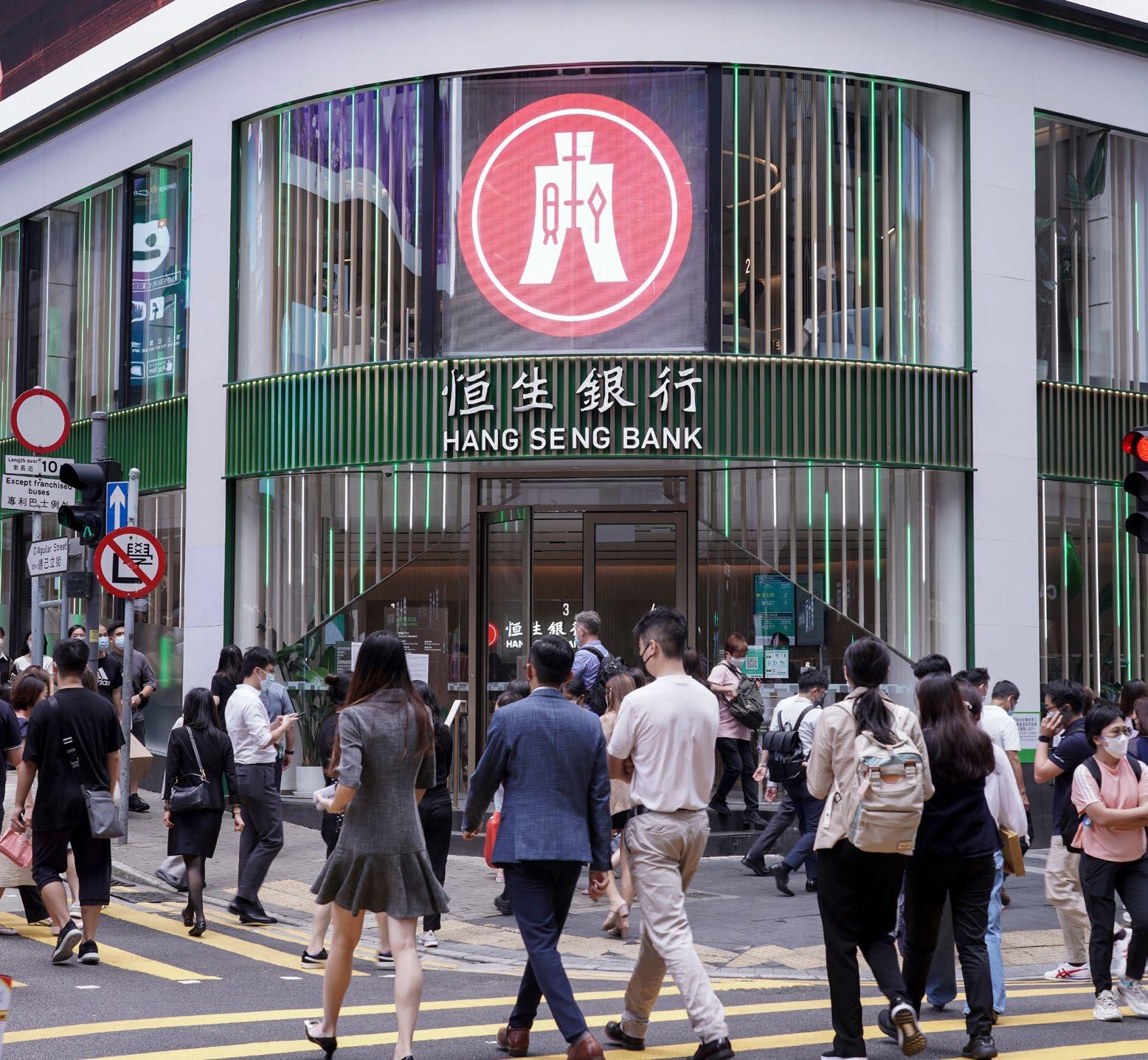
“Outside of Hong Kong, inflation in many jurisdictions should provide more stability to the global economy. Given the anticipated continuation of a challenging environment in 2024, banks should prioritize operational efficiency and risk management to position themselves for reaping the rewards when growth returns in 2025,” McSheaffrey said.
Growth opportunities might emerge from the Greater Bay Area in particular, he added.
There will also be opportunities for M&As and wealth management.
“We continue to see M&A transactions taking place in the financial services sector and an increase in deals within the wealth management and private banking sector is expected,” the report said.
Banks are expected to focus on leveraging Wealth Management Connect 2.0 to enhance their digital wealth agenda and ensure a seamless end-to-end customer journey, from onboarding to the sale of wealth management products.
Challenges
The quality and scale of corporate loan growth will remain under pressure in 2024, KPMG warned.
Banks should also brace for rising non-Mainland real estate impairment charges.
The KPMG experts recommend that banks enhance their early-warning mechanisms by incorporating more forwardlooking indices to ensure comprehensiveness and effectiveness.
“In terms of climate risk, collaboration will be key. By fostering partnerships, sharing data, and developing common standards, the banking industry can collectively address climate risks and leverage green financing,” KPMG said.
34 HONG KONG BUSINESS | Q2 2024
KPMG expects that many banks will clean up their books in 2024 to position themselves for future progress.
ECONOMY
Jianing Song
Paul McSheaffrey
8 each year benefit from Thales technologies billions passengers

thalesgroup.com
©Getty Images
Building a future we can all trust
Foodtech and fintech emerge as bright spots in Hong Kong’s startup landscape
The city is home to over 600 fintech startups and more than 100 food tech firms.
 by Noreen Jazul
by Noreen Jazul
IF there’s one standout factor for the surge in food technology startups, credit the Hong Kong government. Its drive to increase agricultural output through modern and eco-friendly production methods has been relentless.
In 2023, InvestHK reported that the foodtech sector experienced a “substantial year-on-year increase” — an understatement for Hong Kong Trade Development Council (HKTDC) Deputy Director of Research Louis Chan
“The foodtech sector has seen the largest or the most significant increase in terms of the number of startups in 2023… in terms of the absolute number,” Chan told Hong Kong Business. “When I say food technology, it also encompasses agriculture technology.”
Having paid close attention to more and more of these startups, the official traces the trend directly to the government’s all-out support
Fintech will continue to be an interesting area for venture capital firms and investors who have become more prudent or more conservative
to “increase the local so-called dependency ratio of our local supplier of crops or food.”
In December, Hong Kong launched its Blueprint for the Sustainable Development of Agriculture and Fisheries. This endeavour aims to increase the city’s “annual production of vegetables significantly by four folds from about 15,000 tonnes at present to about 60,000 tonnes within 15 years,” amongst others.

According to Chan, the focus of foodtech startups in Hong Kong ranges from farm-to-table technology to genetic engineering of seeds or soil, soil improvement to plantbased meats and various artificial intelligence (AI)-powered farming or fishing.
“Some of them invest in technology like microalgae to improve the protein content of their product or to enhance their protein content. We have also seen companies doing plant-based meat and not necessarily
the meat itself, but also some plantbased pork fats, which can be used as ingredients for dimsum, or for dumplings, or for other cooking uses,” Chan said.
“We [have] also seen companies that are doing plant-based milk, they use soy milk by adding other ingredients such as nuts or sustainable nuts to enhance the nutritional content of the products,” he added.
One of this year’s hottest startups, Meat The Next, uses advanced enzymatic technology to make Tiger Nut Oat Soy Milk, a dairy-free milk fit for lactose intolerant individuals.
Apart from offering health benefits, the product also helps combat desertification on a large scale and enhancement of biodiversity.
Edmund Chan, COO and co-founder of the startup, said one litre of Tiger Nut Oat Soy Milk can support the cultivation of an area “equivalent to that of an iPhone 14 Plus in the desert.”
FinTech remains king
Apart from food tech, financial technology or fintech remains a bright spot for investors in Hong Kong's startup economy.
InvestHK reported that fintech is still the most sought after sector in the city, with 601 startups in the industry.
Chan said fintech is also one of the “most thriving sectors when it comes to startups and early-stage business ventures in Hong Kong.”
“If you’re talking about Hong Kong, we cannot turn our heads away from the financial sector. We will continue to see good promises in financial technology [or] in the fintech sector,” Chan said.
Chan said fintech will also continue to be an “interesting area” for venture capital firms and investors, who have become “more prudent or more conservative.”
Talking on the types of products that will likely emerge from fintech startups, Chan said he is seeing improvement in technologies related to payments and crypto currency.
COVER STORY 36 HONG KONG BUSINESS | Q2 2024
Farm-to-table technology and genetic engineering of seeds are some of the aspects explored by foodtech startups
Louis Chan
“We are expecting what we call bitcoin startups to come to the fort,” Chan told the publication.
He underscored that Hong Kong has a “very good” fintech infrastructure, covering even blockchain and Web 3.0.
“We have a good number of virtual banks, virtual insurance, and a virtual asset-trading platform. Going forward, we see that with all those infrastructures ready, then we are expecting to see more international data companies coming over to grow their business riding on the ready infrastructure, especially when we are expecting more supportive industry policy from the government and also from the Hong Kong Monetary Authority (HKMA), the Securities and Futures Commission (SFC) and the Insurance Authority,” the expert explained.
“They are putting forward a more supportive ecosystem or framework for stakeholders to work on their innovative projects without any concern from the regulators or from the current regulatory framework, so to speak,” he added.
Foreign founders
Fintech is also a good sector for foreign founders, said Neha Singh, CEO and Co-founder of the market intelligence platform Tracxn.
Data from InvestHK showed that 26% of the startup founders in the city are non-locals, with Mainland (21.6%) having the largest share, followed by the United Kingdom (16.6%), United States (12.0%), France (10.1%), and Australia (7.6%).
“Hong Kong [has] a lot of good talent [that] goes in the FinTech, in the financial services space, because that being a hub for financial services as
well as the tech in the [APAC] region,” Singh said. Hiring amongst Hong Kong startups rose 10% YoY in 2023, according to InvestHK.
Manufacturing
Singh noted that electric vehicles (EV) would be a good area for foreign startup founders to explore.
Chan agreed, citing how new energy technologies present a strong opportunity since Hong Kong is promoting the adoption of EVs. In fact, the government supports facilities in the city that aid the growth of EV production, its research and development (R&D), marketing, and other related technology implementation related to it.
With the establishment of Microelectronics Research and Development Institute at Yuen Long InnoPark and the government’s new industrialisation funding scheme, Chan believes manufacturing will also be a bright spot for entrepreneurs seeking business in Hong Kong.
“We are expecting more manufacturing players to come over to use [our] platform and our infrastructure here in Hong Kong,” he shared with Hong Kong Business.
Other areas which Chan believes will receive interest from foreign founders are life sciences and health, AI, and data science. “We have the largest and the world’s secondlargest fundraising hub for biotech companies,” he stressed.
“For those very new biotech companies, they can come over to the stock exchange here in Hong Kong, they can go public in Hong Kong under the so-called CHAPTER 18A, which is the listing regime for biotech companies,” he added.

Days of excess are over, investors warn founders

At a time of decreased capital deployment and lower valuations, experts stressed the importance of capital efficiency for startup funding success.
“The days of excess are over. The bar is certainly higher now for founders,” Brinc’s head of Portfolio Management based in Singapore, Milan Thakkar, said.
Thakkar, however, said many investors still have dry powder and are looking for exceptional founders to back.
“You need to prove that you know how to appropriately allocate the capital invested. This is why we specifically look for resourceful founders that have accomplished impressive things despite facing financial and resourcing constraints,” Thakkar told Hong Kong Business
Neha Singh, CEO and Co-founder of the market intelligence platform Tracxn, shared a similar sentiment saying that the narrative of venture capitalists has now centred around capital efficiency.
Apart from having a path to profitability, Singh said investors look at three things: how big the market is, how the team works, and how the project is executed.
“Some look at teams more than market, some of the other ones will say they look at markets more than team; but essentially they’re always looking at new waves which will create the next set of large companies,” Singh said.
“For instance, there was an internet wave, there was a SaaS wave. Now, obviously, there’s an AI [wave], which they feel that on the back of this, there will be a lot of large companies which will get created.”
For East Ventures, the investment strategy has always been based on 2Ps: People and Potential market.
“We look for strong founders and companies that help to solve large problem statements in a large addressable market. Meanwhile, for the growth-stage companies, we also focus on their traction and ability to scale,” Wesley Tay, principal at East Ventures, said.
“We invest in good companies in both the early and growth stages. Focus on your core strength and provide the solutions that can be the painkiller to the pain points of society,” Tay said he had told founders.
Vickers Ventures has a similar approach, investing in startups that have seen “early product-market fit and are in the process of scaling.”
“For healthcare or biotech investments, we invest when lead programs are finishing pre-clinical studies or have initial human data. We mostly lead in Series A investment rounds,” PohHui Chia, associate director at Vickers Venture Partners, said.
COVER STORY HONG KONG BUSINESS | Q2 2024 37
Asian banks plan to launch digital currency and digital banks in Q1 2022
The Yuen Long InnoPark houses industrial complexes for microelectronics and pharmaceutical production (Photo from HKSTP)
Meat the Next

Founders: Cheung Po Kwan Markus, Chan Ka Ming Edmund
Funding: USD$256000
Founding Year: 2020 (Sep)
Meat the Next, a Hong Kong-based superfood technology company, focuses on crafting delicious and nutritionally balanced protein products from sustainable ingredients. Their mission is to combat climate change by altering dietary habits, aiming to decrease carbon emissions. Leveraging patented enzymatic technology and unique raw materials, their products stand out in the market, providing consumers with a fresh and appealing choice. Furthermore, their investors include BBS, JP Mr. Simon Wong Kit-lung, CityU's HK Tech 300 and Gravity Capital Partners - Impact Venture Capital.

Uncle2 Fintech Limited

Founder/s: WONG WAI KEUNG, Victor
Total Funding: Undisclosed
Founding Year: 2021 (Jan)
UNCLE2 FINTECH stands as Hong Kong's inaugural cloudbased pawn marketplace. Its mission revolves around reimagining the pawnshop funding process to expedite the deployment of pawn assets locally and globally. The company extends the heritage of pawnshops by leveraging quick finance and digital technology, incorporating A.I. and blockchain solutions. Their objective is to foster alternative methods for quick finance with collateral while promoting the century-old pawning concept. Furthermore, UNCLE2 FINTECH endeavours to educate and inspire younger generations to exchange their assets for shortterm liquidity instead of future money.
Vidi Labs Newwit

Founder/s: Turzo Bose (co-founder and CEO); Rahman, Lamia Sreya (Co-founder and COO)
Total Funding: HKD$4m
Founding Year: 2021 (Apr)
Vidi Labs, an early-stage AI startup, seeks to revolutionise daily interactions with hardware and software for visually impaired people (VIP). With a young and passionate team, their aim is to decentralise and streamline user experiences, empowering individuals to optimise their potential with intuitively designed products for the VIP. Specialising in delivering cutting-edge tech, VisionTech and AI solutions for businesses seeking growth, Vidi Labs boasts a diverse tech stack and a capable team ready to cater to various needs. They are an award-winning startup under Hong Kong Science and Technology Park’s incubator programme.
Founder/s: Kan Pan Lawrence Chan
Total Funding: Undisclosed
Founding Year: 2021 (Jun)
Newwit is the world’s first AI and blockchain project that helps investors make better trading decisions. Its prediction game systematically collects prediction data and rewards users to help train and build their proprietary AI model. They currently have 13,000 registered users who have made 300,000+ predictions on their platform. Ultimately, the project aims to train a decentralised AI model using crowd wisdom to enhance future prediction capabilities. One of their main investors is Brinc.
COVER STORY 38 HONG KONG BUSINESS | Q2 2024
Al Carbo Technologies Limited

Founder/s: Ng Pok Him (Nelson), Chan Kwan Wai (Bill), Cheung Yan Chu (Rex)
Total Funding: HKD$5.5m
Founding Year: 2022 (Jan)
Alcarbo Technologies leads the way with a revolutionary algae photobioreactor system, effectively capturing and converting carbon dioxide into valuable by-products. Leveraging highly efficient microalgae, this scalable solution offsets emissions and produces oxygen. Aligned with Paris Agreement objectives, this sustainable approach not only promotes a green and profitable business but also aims for carbon neutrality by 2050. The company was given financial support by PolyVenture, HKSTP Incubation Programme, and Alibaba Entrepreneurs Fund. Meanwhile, their investors include HK tech 300 and CityU Enterprises Limited.
i2Cool

Founder/s: Prof. TSO Chi Yan and Dr. Martin ZHU
Total Funding: HKD$140m
Founding Year: 2022 (Mar)
i2Cool is a technology company incubated by the HK Tech 300 program at City University of Hong Kong. The team has successfully developed the world's leading passive radiative cooling materials (PRC), achieving cooling effects below ambient temperature through efficient solar reflection and midinfrared emission. This patented cooling technology, ideal for construction, facilities, and outdoor setups, has expanded its reach to Southeast Asia, the Middle East, Europe, and the US, speeding up the adoption of energy-saving solutions globally. Spanning over 100 projects worldwide, it covers 53,575㎡, saving more than 1 million kWh. i2Cool's PRC materials not only improve indoor conditions but also reduce urban heat islands and contribute to global warming mitigation.
Moongate

Founder/s: Jonathan Mui, Peter Hui
Total Funding: USD$2.7m
Founding Year: 2022 (Jan)
Moongate is revolutionising the ticketing and membership landscape with their innovative NFT platform. By integrating utility-based NFTs, Moongate empowers event organisers and promoters to offer a continuous journey of benefits and exclusive perks, from pre-event packages to post-event rewards. Key collaborations include Wonderfruit, one of Southeast Asia's largest music festivals, ComplexCon, a globally renowned cultural conference by Complex, and Siam Piwat, a major conglomerate in Thailand. With over $2.7 million in funding, Moongate is set to expand its immersive engagement platform, aiming for global reach and diversification as well as building their own modular L2 chain, serving clients across 30 countries, primarily in Asia.
Inriskable

Founder/s: Megan Chau (CEO, Co-Founder), Kenyon Wong (CTO, Co-Founder)
Total Funding: HKD$3m
Founding Year: 2022 (Jul)
Born from a blend of "invisible" and "risk," InRiskable addresses the critical challenge banks face in identifying latent risks within SME operations, utilising advanced AI to efficiently and accurately filter risk levels. The startup’s platform significantly reduces due diligence time by up to 80% with a remarkable accuracy of 97%. With plans to raise seed funding and expand into Southeast Asia, InRiskable aims to become the Moody's for SME credit assessment, bridging the gap between banks and the elusive data on SMEs, thus enabling safer business practices across the financial ecosystem.
COVER STORY HONG KONG BUSINESS | Q2 2024 39
DayOne


Founder/s: Roxanne Wong & Victor Chan
Total Funding: Undisclosed
Founding Year: 2023 (Jan)
DayOne revolutionises dating with its focus on genuine, inperson connections. It encourages its users into meaningful interactions. Available in Hong Kong and expanding globally, DayOne utilises AI to suggest ideal date venues and times, eliminating the hassle of coordinating schedules. Designed for busy young professionals, it filters out time-wasters, ensuring every interaction leads to a real-life date. DayOne is a member of HKSTP IDEATION Programme, which offers up to HK$100,000 grant.

Founder/s: Brian Lo and Martin Li
Total Funding: USD$5m
Founding Year: 2023 (Apr)
By bypassing traditional, time-consuming trade shows, Markato offers a streamlined online platform for Hong Kong retailers to access over 600 independent brands and nearly 25,000 products from Europe, the United States, and Australia. With seamless logistics and payments, Markato simplifies crossborder transactions, serving as a gateway for global brands to enter the Asian market. After a successful US$5m seed funding round led by Lightspeed Venture Partners in 2Q23, Markato expanded to Singapore, enhancing its engineering, logistics, and merchandising capabilities to connect to a broader audience with global brands.



40 HONG KONG BUSINESS | Q2 2024 COVER STORY
Markato
MBA PROGRAMME SURVEY
MBA programmes attract global talent and boost female enrollment
Providers now include cross-cultural communication skills development to ensure a competitive edge.

MBA programs in Hong Kong are experiencing a surge in demand, with the city attracting a diverse array of students keen on capitalising on its dynamic market opportunities. In this year's MBA survey conducted by Hong Kong Business, six providers reported over 1,533 enrolled students in both part-time and full-time setups, a rise from the 1,354 students in 2022 from eight different providers.
This growth is fueled by emerging technologies like Web3, drawing applicants globally. Also, a notable rise in female enrollees reflects a significant demographic shift, with universities like Chinese University of Hong Kong (CUHK) launching targeted initiatives to support women in advancing their careers in business.
HKU Business School led with the largest enrollment of 712 in its sole MBA program, closely followed by the CUHK with 454 students across three programs.
Other institutions like the Hong Kong Management Association, Hong Kong Baptist University (HKBU) with 176 enrolled students in its four programmes; and the Hong Kong Polytechnic University (PolyU) also reported significant enrollments, with 129 and 62 enrolled students, respectively.
Also entering the list is the University of Manchester–East Asia


Centre. However, admission figures were unavailable for Hong Kong Business at the time of reporting.
For the MBA providers offering fulltime MBA programmes, the CUHK MBA is the most expensive, clocking in at $605,000 for a programme duration of 12-16 months.
Following closely are the full-time MBA at HKU Business School which is offered at $588,000, and the PolyU MBA, which is priced at $460,200.
For part-time programmes listed in this survey, CUHK’s EMBA tops the list with its programme costing a total of $692,000 over 24 months.
Next is its MBA in Finance, costing $558,000 for a 24-month course, and the HKU Business School’s HKU MBA, priced at $510,000 for a duration of 2 to 4 years.
Rising demand
Hong Kong’s position as a global financial hub has established benchmarks for those pursuing MBA education.
“There is rising in number of MBA applications from China as Hong Kong’s role as a financial hub, along with government backing for Web3 and financial technology, will attract individuals worldwide to pursue studies in this market,” Dr. Justin Law, programme director of the PolyU MBA Programme, told Hong Kong Business
Law affirmed that MBA programmes in Hong Kong allow professionals to gain access to opportunities for cross-border networking, internships, and potential career paths in both Mainland China and Hong Kong.
“Hong Kong is an international financial hub and a gateway to global business opportunities. Mainland Chinese applicants may see studying in Hong Kong as an opportunity to gain international exposure, expand their networks, and enhance their career prospects both in mainland China and globally,” he said.
At CUHK, there has been a notable increase of 120% in female enrollment in their MBA programmes, suggesting an upward trend of women establishing their space in the industry.
In response to these demographic shifts, CUHK has launched initiatives specifically designed to assist and empower women in the industry.
“We have implemented networking and mentoring initiatives that specifically aim to support women in business and women’s leadership. These initiatives are designed to promote their leadership development and foster career advancement opportunities,” said Professor Wan Wongsunwai, associate dean of MBA Programmes at CUHK.
As such, CUHK’s new offerings also cater to the demands of a multicultural demographic. “To ensure our students are well-equipped for the multicultural business environment, we now offer more Asian Century perspectives and emphasise the development of crosscultural communication skills,” Wan told Hong Kong Business.
Experiential learning
As the business landscape continues to be more attuned to global dynamics, there also comes the rising trend towards experiential learning to ensure that professionals remain adaptable amidst constantly evolving conditions.
HONG KONG BUSINESS | Q2 2024 41
CUHK saw a 120% increase in women enrollment in their MBA programmes (Photo from CUHK)
HR & EDUCATION | by Diana Dominguez
Wan Wongsunwai
Justin Law
MBA PROGRAMMES SURVEY
42 HONG KONG BUSINESS | Q2 2024 MBA PROGRAMME PROVIDER/LOCAL PARTNER Total Number of Students HEAD OF SINGAPORE OFFICE/ DEAN 2023 2022 HKU MBA HKU Business School 712 465 Prof. Hongbin Cai (Dean) CUHK MBA in Finance The Chinese University of Hong Kong 211 325 Current: Professor Zhaoyang GU (Director, MBA in Finance Programme) 2022-23: Professor Ming LIU CUHK MBA The Chinese University of Hong Kong 165 161 Professor Wan WONGSUNWAI (Director, MBA Programmes) CUHK EMBA The Chinese University of Hong Kong 78 89 Current: Dr Andrew YUEN (Director, EMBA Programme) 2022-23: Professor Howard LAM Master of Business Administration (Marketing/ HRM/ Finance) HKMA - University of South Australia 20 N/A N/A Master of Business Administration HKMA - University of Wales Trinity Saint David 26 N/A N/A Master of Business Administration (International Business) HKMA - University of Greenwich 50 N/A N/A Master of Business Administration HKMA - Wrexham University 80 N/A N/A MBA Hong Kong Baptist University 129 N/A Dr. Shui Ki WAN (MBA Programme Director) PolyU MBA The Hong Kong Polytechnic University 62 63 Ir Prof. T.C. Edwin Cheng Manchester Global MBA University of Manchester - East Asia Centre N/A N/A Xavier Duran, MBA Programmes Director, Alliance MBS, The University of Manchester TOTAL 1533 1103
Notes: *for 2022 intake (part-time only) **for 2024/25 intake ***Hong Kong-based
HONG KONG BUSINESS | Q2 2024 43 TOTAL NUMBER OF STUDENTS Minimum Cost (SG$) Duration Number of Intakes Per Year Full Time Part Time Full Time Part Time Full Time Part Time 53 659 $588,000 $510,000 1 year 2-4 years "FT: 45 PT: 420" N/A 211 N/A $558,000 N/A 24 mos 1 49 116 $605,000 $470,000 12 or 16 mos N/A 1 N/A 78 N/A $670,000 tuition + $28,000 residence* N/A 24 mos 1 N/A 20 N/A $148,800 N/A 24 2 N/A 26 N/A $128,000 N/A 12 2 N/A 50 N/A $116,000 N/A 20 2 N/A 80 N/A $118,500 N/A 12 2 N/A 129 N/A $350,00 N/A 24 mos 1 42 20 $460,200 ($11,800 per credit)** N/A 1 year 2 years around 50 N/A N/A N/A $395,000*** N/A 2-5 years, 1 and ½ for Accelerated Path students 2 MBA PROGRAMMES SURVEY
How Mastercard ensures ethical AI governance in its operations
One step is minimising data pulled or collected from sources.
For Mastercard, the future of travel and retail is one woven together by strong loyalty programs and the right use of AI. It is a future that Matthew Driver, executive vice president and head of Services for Asia Pacific, is extremely keen on exploring.
“The potential for AI and generative AI, specifically, is really, really large,” Driver told Hong Kong Business in a sitdown chat. “I think the challenge is that, as Bill Gates said, we’ll overestimate in two years and underestimate in 10 years. I think that’s always going to be the thing — trying to figure out what exactly it will be.”
Mastercard, at least according to Driver, has it all figured out and they make no secret of it. Here’s what it takes: a mixture of personal ambition to become a leading company in the use of AI; the right use of tools to ensure personalisation, regulatory compliance, and privacy; and overall ensuring its relevance in their products and services.
“We want to ensure that we’ve got strong AI governance, ensure that we’re protecting customer data, that we have got an ethical AI approach and governance. And then we want to make sure that we’re also participating and driving AI for social good. More broadly, how do we participate and engage with regulators to ensure [we] have the right kind of framework?” Driver mused.
Mastercard, in particular, plans to show how data and AI can be used to create a curated travel experience — all while the customers remain in control of it.
“[AI] can help you secure your itinerary, I can learn your preferences, and it can make that entire process much easier and more intuitive. I think that’s something that’s relevant to most people who notice it,” Driver said.
A question of trust and culture
Using AI comes with all sets of issues, especially when the plan is to use it to enhance the traveling experience. How does one strike the balance between using these new AI features whilst ensuring that it is unbiased and transparent?
For Driver, the answer is simple: it’s really just about trust.
“Why does MasterCard have such a well-regarded brand? Because people trust us to be a positive, responsible actor in the process," Driver shared in the interview.
“Having a responsible data program and an ethical AI governance process over the top, with respect to how you develop your models; making sure that you’re aware of the potential biases that you’re contemplating the data that you’re getting access to; that you’re minimising your data footprint,” he told Hong Kong Business
“[We’re] thinking about potential bias testing to ensure it’s not there, making sure you’ve got that transparency, that explained ability. I think all those things are important, even before you start building AI,” Driver added.
Loyalty
Talking about the future goes beyond just the hottest new tech on the table, and Driver went beyond just discussing

generative AI to highlight one of Mastercard’s tried and true business lines: loyalty programs.
Driver noted the seemingly contradictory nature of loyalty programs nowadays — one that strikes the balance between personalisation and privacy.
It all starts with transparency and minimising, he said. “We try to make sure we’re minimising. We’re not pulling data that we don’t need, or we’re not seeking data that we don’t need. We cleanse it, we anonymise it, we categorise it, and we put it into our data warehouse, and then we build insights off the back of [it],” Driver said.
Black, white, gray
There’s also the question of regulation, especially with each country and market implementing their own set of laws and standards, at different paces.
We’re not pulling data that we don’t need, or we’re not seeking data that we don’t need.
Driver reiterated the need for organisations to ensure that they have the right tools at their disposal, whether it be in using and applying AI or processing data for personalisation whilst maintaining privacy and having the right governance in place.
“Make sure that you’ve got really cutting-edge tools to minimise risks as you build out your technology foundations to really stay up to date with what’s happening,” Driver said, adding that organisations should ensure that they have dynamic AI governance that comply with upcoming regulations and also strengthen their general oversight.
44 HONG KONG BUSINESS | Q2 2024 INTERVIEW
Matthew Driver, Mastercard executive vice president and head of services for Asia Pacific
BANKING TECHNOLOGY | by Frances Gagua



HONG KONG BUSINESS | Q2 2024 45
:
Supercharged Processing Power Next-Level Performance Unleashed
Automatic Vehicle Identification Solutions BEST-IN-CLASS

Why HK investors flock to Thailand's residential market
Buyers from the city account for a third of foreign purchased homes in Thai developer MQDC’s portfolio.
Investors and expatriates from Hong Kong are showing a growing interest in Thailand's upscale residential property market, enticed not just by the affordability, but also by the prospects of securing higher rental yields and achieving substantial capital gains.
“Hong Kong buyers are drawn to Bangkok by relative affordability, with price per square metre recently estimated at about a fifth of that in the territory,” Wilawan Brenig, vice president for International Market Development at Magnolia Quality Development Corporation Limited (MQDC), told Hong Kong Business “Buyers are also entering a market that, driven by the city’s unwavering global appeal, offers solid appreciation and rental returns.”
Data from JLL Thailand showed that the market yield for prime apartments in Bangkok is 4.8%. The sales rate of super-prime and prime condominiums in the city is also high at 83.0% and 80.0%, respectively.
In 9M23, the foreign condominium ownership in Thailand has gone up 37.6% YoY.
They often seek residence suitable for comfortable family living and in walking distance to mass transit
MQDC is amongst real estate developers in Thailand that has experienced the growing interest of Hong Kong buyers in the Land of Smiles. Brenig said Hong Kong is one of their five largest foreign markets.
“Buyers from the territory contribute significantly to the third of our homes that are purchased by foreign buyers,” he said.


“Hong Kong-based buyers have already contributed to the success of [our] previous projects like ICONSIAM – Magnolias Waterfront Residences and The Residences at Mandarin Oriental, Bangkok. Expats from Hong Kong are tenants as well as buyers in Whizdom Connect Sukhumvit, Whizdom Essence Sukhumvit, and Whizdom Inspire Sukhumvit,” he added.
Preferences of Hong Kong buyers
When purchasing properties for residential use, Brenig said most Hong Kong buyers prefer 2-bedroom, 2-bathroom units or 2-bedroom, 1-bathroom units.
In terms of size, Hong Kong buyers often select units spanning 40 square
metres (sqm) to 60 sqm.
“They often seek residence suitable for comfortable family living and in walking distance to mass transit,” Brenig shared.
In Whizdom Inspire Sukhumvit, MQDC has specially allocated 2-bedroom, 2-bathroom units on high floors and sized approximately 40 sqm-60 sqm, for buyers from Hong Kong. The final 15 units of the development will also be made available to Hong Kong buyers.
Hong Kong buyers aiming to use residential units as investments tend to seek out 1-bedroom, 1-bathroom condos with excellent transport links, such as Whizdom COEX Pinklao.
“The Whizdom brand is now well established in the Hong Kong market and the location at True Digital Park is especially attractive to buyers from the territory,” Brenig said.
The Forestia, The Aspen Tree Brenig said he also expects Hong Kong buyers to be a “key component” of MQDC’s several projects at The Forestia, including The Forestias Signature Series, Mulberry Grove, and The Aspen Tree.
The Forestia is a 64-hectare luxury multi-generation community consisting of multiple residential projects under MQDC’s different brands.
“The location [of The Forestia] at Bangna-Trad is a fast-growing business district and it’s just 30 minutes from Suvarnabhumi Airport. Expat residents, in particular, will appreciate having every amenity for an amazing lifestyle onsite whilst being close to the centre of Bangkok with excellent connections to the Eastern Economic Corridor,” Brenig said.
Justin Wong, marketing manager at SQM Global Properties, the partner of MQDC for The Forestias project, said the development will be “highly valued by Hong Kong investors looking for a tranquil yet connected living environment”
“The Forestias stands as a testament to the harmonious blend of urban living and natural surroundings. Its lush greenery and forested heart offer a serene escape from the bustling city life, something we know is so rare in Hong Kong,” Wong said.
46 HONG KONG BUSINESS | Q2 2024
(Photo from Icon Siam Magnolias Waterfront Residences)
RESIDENTIAL PROPERTY
INDUSTRY INSIGHT: REAL ESTATE
Wilawan Brenig
Justin Wong
Tax incentives may not be enough for Hong Kong's global maritime hub goals
Ship owners are keen on access to maritime services, such as arbitration and chartering.
In the pursuit of maintaining its status as a global maritime hub, Hong Kong may need more than just a profit tax regime to lure in more shipping companies.
Experts, such as Dr. Eugene Wong, associate head and associate professor at The Hang Seng University of Hong Kong's Department of Supply Chain and Information Management, point out that more work has to be done for companies to set up headquarters in the city and for more vessels to fly its flag.
He said the government should consider offering shipping lines incentives for setting up offices in the city. “This could favour shipping lines to come here to Hong Kong as far as setting up offices because in the past, there have been one or two companies [which] has already moves from Hong Kong to nearby countries,” Wong said.
The government should also look into incentivising and strengthening other areas of shipping. He cited the need for arbitration and operation activities such as vessel planning and container flow planning because these activities actually happen in Hong Kong.
Tax regime
At present, Hong Kong’s half-rates profit tax regime covers carriage and chartering, ship agency, ship management or ship broking activities, and ship leasing activities.
Wong said Hong Kong could learn from Nansha, Guangzhou in the Mainland, which awards shipping enterprises that have routes passing through its port, or having achieved a certain throughput level.
Whilst there are more that Hong Kong can do to attract shipping players, Wong underscored that the city’s current half-rates profit tax has also been beneficial to the industry.
Willy Lin, chairman of the Hong Kong Shippers’ Council, shared a similar sentiment saying the half-rates profit tax regime

We [do] not only want them to come, but we want them to utilise Hong Kong’s quality service


can help Hong Kong in its goal to encourage flagging.
Market share
Data from the United Nations Conference on Trade and Development (UNCTAD) showed that as of September 2023, Hong Kong is the fifth-largest ship-owning market in the world.
With 2,537 vessels flying its flag, Hong Kong accounts for 2.4% of the world fleet in terms of vessel numbers. In terms of value, Hong Kong ranks sixth, with vessels flying its flag representing a 6.27% share in the world fleet.
More than the incentives, Lin said Hong Kong is working to make maritime services of “quality” to attract ship owners to come to the city.
“We [do] not only want them to come, but we want them to utilise Hong Kong’s quality service. In the past couple of years, actually, Hong Kong [has] embarked on not only trying to maintain a maritime center, we’re always trying to support the higher value added maritime services like maritime arbitration, shipping financing, [and] shipping insurance,” Lin said.
Other maritime services
Apart from maritime arbitration and dispute resolution and ship financing and leasing, and marine insurance, InvestHK said Hong Kong is also developing high-end maritime services for ship brokers and ship agents, and on ship management and chartering.
Making all other maritime services of quality and of high standard alongside a tax regime will be a good package to attract shipowners to register their ships in Hong Kong, added Lin.
According to InvestHK, What could help Hong Kong further sail as a top player in the maritime industry is if it begins bunkering of sustainable fuels.
In the 2023 Policy Address, Chief Executive John Lee said Hong Kong will press ahead with the provision of liquefied natural gas (LNG) bunkering for ocean-going vessels (OGVs).
“If we cannot bunker in 10 years’ time, shipping lines will not come to Hong Kong, cargoes will not be here. So it’s important that the government recognise the importance of bunkering. This is basically the big boat,” Lin said.
HONG KONG BUSINESS | Q2 2024 47
As of 2023, Hong Kong maintains a 2.4% share of the world fleet in terms of vessel numbers.
INDUSTRY INSIGHT: SHIPPING & MARINE SHIPPING & MARINE
Willy Lin
Eugene Wong
REGIONAL OUTLOOK: CHINA
How have banks’ wealth management pivots played out in China?
There’s up to $25b in fees to be made in Asia, but it’s a tough market, an analyst said.
For the last half decade, whenever it’s time for lenders to make the quarterly or mid-year update on their earnings, you can bet to hear one of three things: lower profits; another restructuring; and the potential of wealth management as the driving force for profitability.
Banks’ hopes in managing the money of the affluent are not without cause. A 2023 report by McKinsey & Co. posits that there is as much as $25b in fees to be made from Asia’s richest.
Success stories, like UBS’ Wealth Management Division generating around US$1.5b in wealth-related fees for the third quarter of 2021, for example, showed promise. From then, that division of UBS would report US$4.97b and US$3.58b in earnings for 2022 and 2023, respectively.
Oliver Wyman’s Jasper Yip told Hong Kong Business that there is $200b in global revenue pool for “wealth management (and) corporate and institutional banking” solutions, in particular.
Apart from fees and commissions, banks’ wealth management businesses have also presented themselves as an effective lever to attract stickier funding for their balance sheet, which is particularly beneficial to the higher interest rate environment, Yip said.
But not everyone in the industry is treading the same path.
“Under the current environment, banks need to develop a more resilient revenue portfolio where the longerterm nature of wealth management economics can serve to complement short-term natured businesses like investment banking and sales & trading,” noted Yip, who is a partner and the head of corporate and institutional banking for Asia Pacific at Oliver Wyman.
China’s lustre fading?
China is often a key Asian market elevated by banks as a wealth mecca. There is a good reason for this: the Red Dragon is said to be creating millionaires at a rate three times faster

Onshore China is still very much a local “captive” market, where wealthy local individuals would still prefer to go to local providers with a deeper local product shelf
than that of the US through 2025, at least according to estimates of the 2021 wealth report by Credit Suisse.
“In Asia, wealth creation is characterised by the rapid emergence of entrepreneurs. This was certainly the case for China with the tech sector over the last decade, while we are also observing the same for other emerging Asian markets,” Yip said.
The 2020s has not been the kindest to China, however. Apart from the global negative impact brought about by the COVID-19 pandemic, China has been hit with a whammy of economic-related issues. There is that still-ongoing property crisis, which notably claimed real estate giant Evergrande. Evergrande filed for bankruptcy in 2023, a slow decay that began after it defaulted on its $333-b debt in 2021.

Its banking industry is also experiencing weakness. One notable example of China’s banking woes is when three banks in its Henan province froze at least $178m of deposits in 2022. Strict lockdown rules in 2020-2022 further weighed down on an economy already grappling against a slowdown that began before the pandemic. Tricky geopolitical issues with Taiwan and the US are another cause of concern for bankers.
“We certainly observe a more nuanced attitude towards building wealth management in China compared to 5 years ago,” Yip said.
For foreign banks, though, there is the fact that Chinese locals are more predisposed to working with local banks than trusting their money to international players. “Whilst geopolitical challenges were often cited as the reason, the initial exploration by foreign banks has also revealed that onshore China is still very much a local “captive” market, where wealthy local individuals would still prefer to go to local providers with a deeper local product shelf,” Yip said.
On a more positive note, Yip believes that these attitudes are “gradually turning a corner.” The “reversal of interest rates” in late 2023 meant that Chinese individuals are increasingly open-minded about tapping into cross-border and global investment products that global banks are better able to provide.
The asset management strategy
Foreign banks have also taken a different approach to penetrating the wealth management market in China: asset management firms.
“We observe that most wealth managers/private banks have now sharpened the focus to build asset
48 HONG KONG BUSINESS | Q2 2024
China is said to be creating millionaires three times faster than the US through 2025
BANKING
Jasper Yip
management capabilities in China to tap into their global product strengths immediately and to gradually build the local brand affinity for future doubling-down opportunities, compared to very initial hypotheses to build a full private bank in China,” Yip noted.
Overall, despite challenges, China is still seen by banks as a significant portion of global wealth pools.
“[It] is still strategically important for global banks to explore onshore China cautiously to keep their brand relevant for the offshore capital of the Chinese,” Yip said.
Optimising for the future
Overall, Oliver Wyman remains optimistic for the future of the wealth management industry — at least for the foreseeable 12 to 24 months. Meanwhile, near term challenges are expected for the global investment environment.
“Banks that enjoy healthy net interest income associated with wealth management during this period need to look into optimising the infrastructure and management science to continue to grow more sustainably in the future,” Yip said.
He advises banks to adopt a tailored combination of human-led service and technology and digital interface, noting that this will become
REGIONAL OUTLOOK: CHINA
increasingly crucial for future winners.
McKinsey & Co. echoed the same thing. “Banks and wealth managers can use digital products and services that are more personalised and tailored to the needs of specific customer segments, and which have a lower cost to serve than traditional client interactions,” it said in a report on digital and AI-enabled wealth management in Asia.
To achieve these advantages, banks and wealth managers will reportedly need a full-stack approach across four dimensions: segmented customer value propositions, reimagined digital engagement, AI-powered decision making and core technology, and the right operating model and talent, said McKinsey & Co.
Wealth management products
Investor appetite for China’s wealth management products (WMPs) remained muted in 2023.
China’s WMP balance stood at CNY26.8t (approximately US$3.72t) as of end-2023, a decline of 3% from a year ago, according to Fitch Ratings.
Whilst WMP balance grew by 6% in H2 compared to H1, this was more the result of the stabilisation in domestic bond prices and net asset values, which eased redemption pressures in the last six months of the year.
Investor appetite for WMPs has remained cautious in recent years, with increased allocation towards more liquid assets
“Investor appetite for WMPs has remained cautious in recent years, with increased allocation towards more liquid assets. This, together with tepid home purchase demand and consumer sentiment, drove retail deposit and term deposit growth higher in 2023 despite reductions in deposit rates,” Fitch Ratings said.
Fitch says that WMP yields have shown signs of recovery since H2 2023. If sustained, this could lead to modest growth in the WMP balance in 2024.
Investment in non-standard assets declined to 6% of total outstanding WMPs in end-2023, from 7% in 2022.
Cultural preferences
In a joint study on China’s family wealth management by HSBC and Tsinghua University, results showed that ultra-high-net-worth (UHNW) Chinese entrepreneurs lean toward passing on values as part of transferring wealth to their heirs.
The financial services firm and the Research Centre for Global Family Business, PBC School of Finance, Tsinghua University published the 2023 China Family Wealth Management – Beyond Uncertainty: The New Wave of Succession Planning and Family Trust.
The study conducted showcased the recent patterns and changes in the behaviour of Chinese entrepreneurs regarding wealth management such as crossgenerational wealth transfer, corporate governance, family governance, and philanthropy.
“The study finds that Chinese entrepreneurs create wealth faster than their counterparts in overseas markets and are currently undergoing or will soon begin their first cross-generational transfer,” HSBC said in a release.
One of the findings showed that Chinese wealth creators prioritise creating their businesses whilst newer generations look at other industry opportunities as the second and third generations are more receptive to newer technologies.
“They are more willing to invest in or attempt to enter emerging industries, such as biotechnology, artificial intelligence, and new energy,” HSBC revealed.
HONG KONG BUSINESS | Q2 2024 49
Mutual fund assets under management
Source: WealthTech in Asia-Pacific 2024, McKinsey & Company
REGIONAL OUTLOOK: APAC
Asia turns to biomass co-firing in coal plants for energy security and transition
However, this plan extends the operations of coal-fired power plants.
Coal-reliant Asia could not afford to phase out the fossil fuel industry immediately to accelerate the transition to renewable energy. They shift to co-firing biomass in the coal plants so as not to jeopardise energy security whilst reducing emissions, and in turn, further prolong the life of power plants, according to experts.
Biomass could potentially reduce the reliance on fossil fuels, and blending it with coal in power generation presents an opportunity for Asian markets to lower power plants’ net carbon emissions as biomass combustion is carbon-neutral, Alejandra Leon, project officer at World Bioenergy Association (WBA) said.
“As the Asian region works towards cleaner and more sustainable energy systems, the strategic deployment of biomass and co-firing can play a crucial role in achieving emission reduction goals, fostering energy security, and supporting local economies,” Leon told Hong Kong Business.
“It’s essential, however, that these initiatives are undertaken with a holistic approach that considers technological advancements, environmental sustainability, and long-term energy strategies,” Leon added.
Current capacity
The adoption of bioenergy in Asia has increased four times in the past decade to 64,193 megawatts (MW) in 2022 from only 16,270 MW in 2012, data cited by the WBA from the International Energy Association (IEA) showed. China is leading in terms of capacity with 34,088 MW, followed by India with 10,670 MW, and Japan with 5,476 MW.
In India, the government is requiring all coal-fired power plants to co-fire with biomass with a ratio of around 5%–7%, the association said. Similar mandates were issued in China, whilst Japan and South Korea have ramped up their biomass



share in power generation by giving incentives such as feed-in-tariffs and renewable certificates.
Putra Adhiguna, Energy Technologies Research lead for Asia at the Institute for Economics and Financial Analysis, also noted that China and India mostly use solid biomass from crops and residues, even forestry residues; whilst Japan and South Korea, which are major importers, use wood pellets or palm kernel.
Southeast Asia’s situation
The biomass capacity of Southeast Asia is only around 6,000 MW as of 2020, and is mainly installed in Thailand with 2.2 gigawatts (GW), and Indonesia with 1.9 GW capacity, Suwanto, senior officer of Power, Fossil Fuel, Alternative Energy and Storage Department at the ASEAN Centre for Energy (ACE), said.
This is compared to the power generation coming from oil and coal which accounts for 76% of the region’s total, he said.
Despite this, there is significant progress in driving biomass use in the power sector, particularly in Malaysia, Thailand, Vietnam, and Indonesia, as cited in an ACE report. In Indonesia, state-owned electric utility firm PT PLN issued a regulation that provides a basis for the implementation of co-firing in
coal-fired plants.
Malaysia laid out four strategic pillars for renewable energy targets in power generation composition until 2035 under its roadmap, with the second pillar aimed at exploring potential support mechanisms for biomass co-firing. Thailand also included a “Community-Based Power Plant for Local Economic Project” in its plan with a total capacity of 1,993 MW comprising biomass, biogas, and solar hybrid.
In Vietnam’s recently-approved Power Development Plan, coal plants have to burn biomass and ammonia fuel after 20 years of operation starting at 20% and increasing to 100% as it aims to phase out coal by 2050, according to the ACE report.
“In terms of supply, Vietnam has become the world’s largest supplier of wood pellets (after the USA).
Utilising resources from the furniture industry, the country has become a major player in the biomass sector in the region,” WBA said.
Whilst biomass co-firing is seen as beneficial, markets should take caution in dealing with blending it with coal, Adhiguna said.
“Forcing its application may seem to bring benefit, but to get more biomass in the energy mix you will need to consume more coal, a proposition which will increasingly be scrutinised by stakeholders,” he said.

50 HONG KONG BUSINESS | Q2 2024
Thailand has a capacity of 2.2GW of biomass (Photo from Thai Solar Energy)
POWER
Putra Adhiguna
Alejandra Leon
Suwanto
Policy alignment needed to push APAC markets to unified carbon credits
ERM’s Peter Rawlings says the differing maturity levels of energy systems may inhibit collaboration.
Carbon credit schemes supporting the energy transition are growing in the Asia Pacific, with different markets implementing their respective policies. However, challenges to the full rollout remain as there is a lack of policy alignment amongst markets.
Peter Rawlings, Global Industry Lead, Finance Sector, at Environmental Resources Management (ERM), said around 68 countries globally have implemented various forms of carbon trading mechanisms. China, Korea, New Zealand, Singapore, and Japan are amongst the notable markets in Asia that have such schemes, he said.
“We have to face the fact that it is a very complex region. Each country is very different in its own right. We have got to accommodate that diversity, the differing levels of maturity of the energy and power systems,”
Rawlings told Hong Kong Business.
“We have to figure out the mechanisms to support them. We need consistency and alignment, and that doesn’t exist at the moment. You have varying policies and varying approaches, and that is limiting that kind of intercompany region-wide collaboration,” he added.
Singapore, for example, has partnered with 15 countries to collaborate on carbon credits, including Bhutan, Cambodia, Indonesia, Mongolia, Papua New Guinea and Sri Lanka.
Rawlings also shared how the carbon credits scheme supports the ramping up of green financing in the region in an interview with Hong Kong Business
Can you provide us with an overview of the carbon credit landscape in Asia Pacific, particularly in the power sector?
We are seeing a period of rapid growth in the carbon markets. A lot of that growth is aligned to agreements like the Paris Agreement. The voluntary carbon market in 2021 was worth about $2b. There are estimates that in 2030, that could be anywhere from $10b to $40b. You can see huge incremental growth there. Carbon markets in various guises certainly have a big opportunity to play in the region, given the growth that the region is seeing and the desire to move to net zero.
Which countries in the region are leading in terms of driving the carbon credit market?
It would be wrong for me to say who the leader is because that is picking one or another against them. But when you think about a place like Singapore, it naturally is a finance centre for the region. Thus, you can see countries like Singapore playing a very prominent role, given the finance that they’re helping to mobilise through the different incentives and innovative ways of implementing their projects.
China has a major role to play simply based on its scale. There is already a lot happening there, and that will continue to grow. You have subtleties based on each country, but, for overall success, it is going to require all countries to be working and collaborating.


What are the challenges in adopting carbon credit schemes in the region? How can governments help in addressing them?
There are challenges; but with challenge comes opportunity. We have to face the fact that it is a very complex region. Each country is very different in its own right. We have got to accommodate that diversity, the differing levels of maturity of the energy and power systems. You have to acknowledge that we have got a lot of infrastructure that may only be five to 10 years old. For example, there is a cost associated with rapidly looking to phase out coal-fired power stations.
As such, we have to figure out the mechanisms to support them. We need consistency and alignment, and that doesn’t exist at the moment. You have varying policies and varying approaches, and that is limiting that kind of intercompany region-wide collaboration.
Carbon markets in various guises certainly have a big opportunity to play in the region, given the growth that the region is seeing and the desire to move to net zero
What are some of the recent carbon credit schemes or transactions in the region particularly in the power sector? There are a couple of things that are worth highlighting. The Asian Development Bank (ADB) has been very prominent in its desire to help facilitate and accelerate the transition. Their energy transition mechanism is one of the kinds of outputs that is encouraging a move from fossil fuels to renewables.
Similarly, you have the same happening here in Singapore, and the government has looked to accelerate, encourage, and incentivise a very similar mechanism. They’re phasing out fossil fuel, particularly coal-fired power stations and, as a result, encouraging alternative lower carbon options.
HONG KONG BUSINESS | Q2 2024 51 INDUSTRY INSIGHT: POWER
Singapore-headquartered Climate Impact X is a global marketplace for carbon credit transactions (Photo from CIX)
POWER
Peter Rawlings
EVENT: HIGH FLYERS AWARDS
Hong Kong’s most exceptional innovators celebrated at HKB High Flyers Awards 2024
Innovation continues to be a driving force in today’s business landscape, with companies constantly striving to develop groundbreaking products and services to meet evolving consumer needs. From cutting-edge technology to personalised experiences, businesses are pushing the boundaries of what’s possible, setting new standards for excellence in the process.
In honour of these outstanding enterprises, the prestigious HKB High Flyers Awards 2024 proudly revealed its winners at the esteemed Hyatt Regency Hong Kong. The awards programme, celebrating the
High FlyersAwards 2024
Archikris Design Group
Interior Designer
AXA Hong Kong & Macau
Cloud - Insurance
AXA Hong Kong & Macau
Big Data - Insurance
Fidelity International
Financial Services
Hang Seng Bank Limited
Global Banking
Hastens Store Hong Kong
Luxurious Bedding
Hyatt Regency Hong Kong, Tsim Sha Tsui
Best City Hotel
Mayer & Associés
Law Firm
Paragon Trading Asia Limited
Most ESG Water in Asia
PrimeCredit Limited
Outstanding Finance Company
RaffAello Investment Management (HK) Limited
Investment Management
Rhenus Warehousing Solutions Hong Kong Limited
Automation - Logistics
Rotary Club of Homantin Hill
The Most Distinguished Club for Fellowship & Community Services
Soteria Trust
Trust and Fiduciary Services
Standard Chartered Bank
Bank of the Year
Vastcom Technology Ltd
AI Democratisation

outstanding achievements of companies across the region, was held at the Hyatt Regency Hong Kong on 30 January 2024, from 6:30 to 9:30 p.m.
From innovative products to exceptional services, the event honoured those who have significantly contributed to enhancing the capabilities and competitiveness of the region. The event was a resounding success, attracting industry leaders, entrepreneurs, and innovators from various sectors.
Congratulations to all the winners for their exceptional contributions to the business landscape! See the full list of winners below:

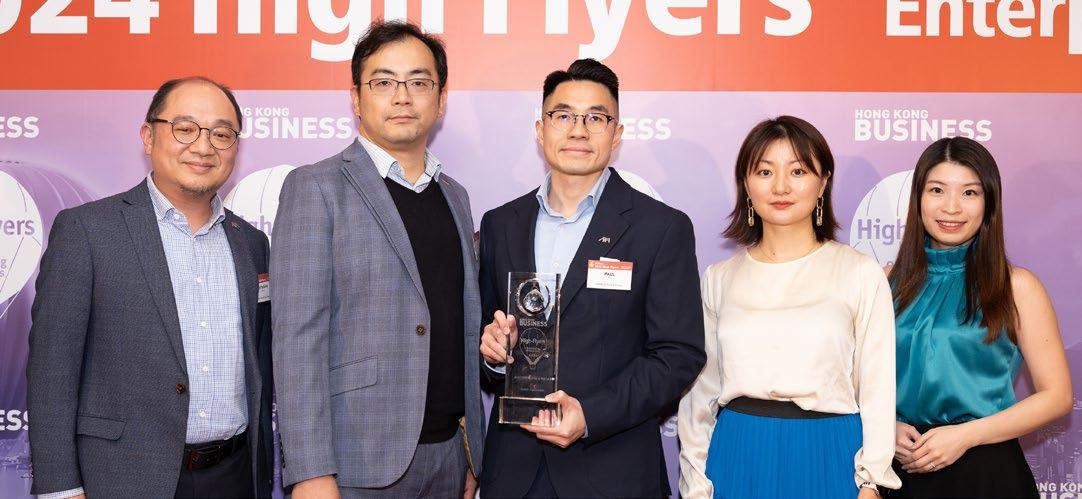
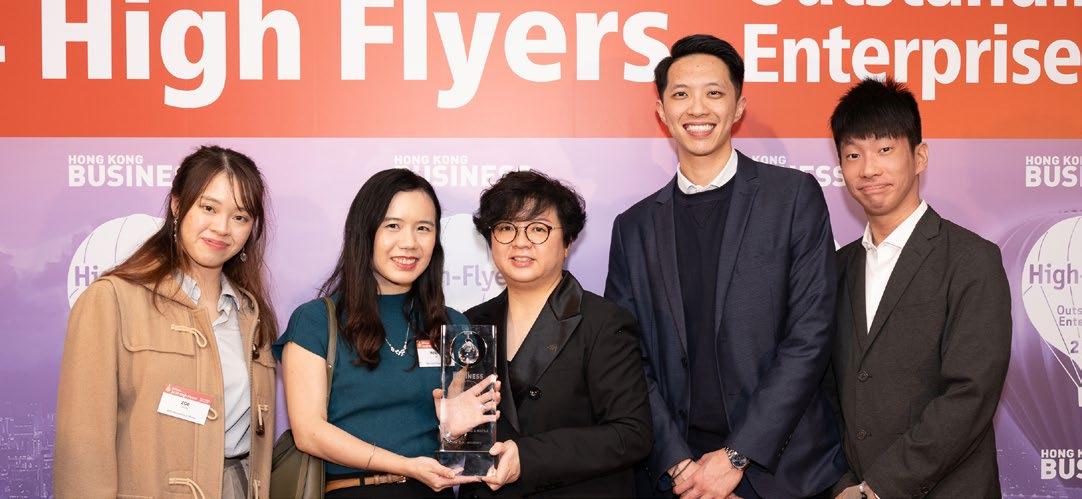

52 HONG KONG BUSINESS | Q2 2024
Archikris Design Group
AXA Hong Kong & Macau
Fidelity International
AXA Hong Kong & Macau













HONG KONG BUSINESS | Q2 2024 53
Hang Seng Bank Limited Hastens Store Hong Kong
PrimeCredit Limited Soteria Trust Standard Chartered Bank Vastcom Technology Ltd
Hyatt Regency Hong Kong, Tsim Sha Tsui Mayer & Associés Paragon Trading Asia Limited
Rotary Club of Homantin Hill RaffAello Investment Management (HK) Limited Rhenus Warehousing Solutions Hong Kong Limited

Visionary leaders and enterprises lauded at Hong Kong Business Awards
In an era of rapid change and unprecedented challenges, excellence and innovation cannot be overstated. Across industries and regions, leaders and enterprises are driving progress, shaping the future, and inspiring others with their remarkable achievements.
The HKB Greater Bay Area Enterprise Awards and HKB Management Excellence Awards recently concluded their prestigious ceremonies, spotlighting exemplary leadership, innovation, and enterprise. The awards presentation day, held on 31 January 2024, took place at the renowned Hotel ICON.
The HKB Greater Bay Area Enterprise Awards, open to companies based in Hong Kong and Macau, recognises exceptional initiatives and projects launched within the Greater Bay Area that promote collaboration, investment, and development.
Meanwhile, the Hong Kong Business Management Excellence Awards aims to honour individuals and teams who have demonstrated
HKB MANAGEMENT EXCELLENCEAWARDS
CSR Initiative of the Year
Food & Beverage - Vitasoy International Holdings Limited
Diversity and Inclusion Initiative of the Year
Life Insurance - Manulife (Diversity, Equity & Inclusion (DEI) – Asia)
Executive of the Year
Financial Technology - Vivian Wong, Linnovate Partners Limited
Food & Beverage - Christopher Liang, Paragon Trading Asia Limited Heavy Civil Construction - Anthony Chow, Vicon Holdings Limited
Team of the Year
Financial Technology - Linnovate Partners Limited General Insurance - Crawford (Hong Kong) Ltd.
HKB GREATER BAYAREA ENTERPRISEAWARDS
Allianz Trade in Asia Pacific Business Insurance
GienTech Technology (Hong Kong) Limited IT Services
Hang Seng Bank Limited Banking
Mead Johnson Nutrition (Hong Kong) Limited Infant and Child Nutrition
Sanofi Healthcare
Shing Hing Plastic Manufacturing Limited Manufacturing
Sino Jet
Aviation
Vicon Construction Company Limited Heavy Civil Construction
outstanding leadership, innovative thinking, and successful implementation of initiatives that have led to tangible business gains.
The awards programme places a spotlight on various aspects of business management, acknowledging achievements in employee engagement, health and wellness, diversity and inclusion, and corporate social responsibility.
Entries to the HKB Management Excellence Awards were evaluated by distinguished judges, including Jacky Lai, Partner, Assurance at Ernst & Young; Gloria So, Partner, Advisory Services at SW Hong Kong; and Ivan Chan, Partner, Audit & Financial Advisory Services at Mazars in Hong Kong.
When first asked about his key criteria in evaluating nominees, EY’s Lai stated: “I am keen to observe how business leaders act on global challenges and adopt new technologies under the current challenging economic and geopolitical environment.”
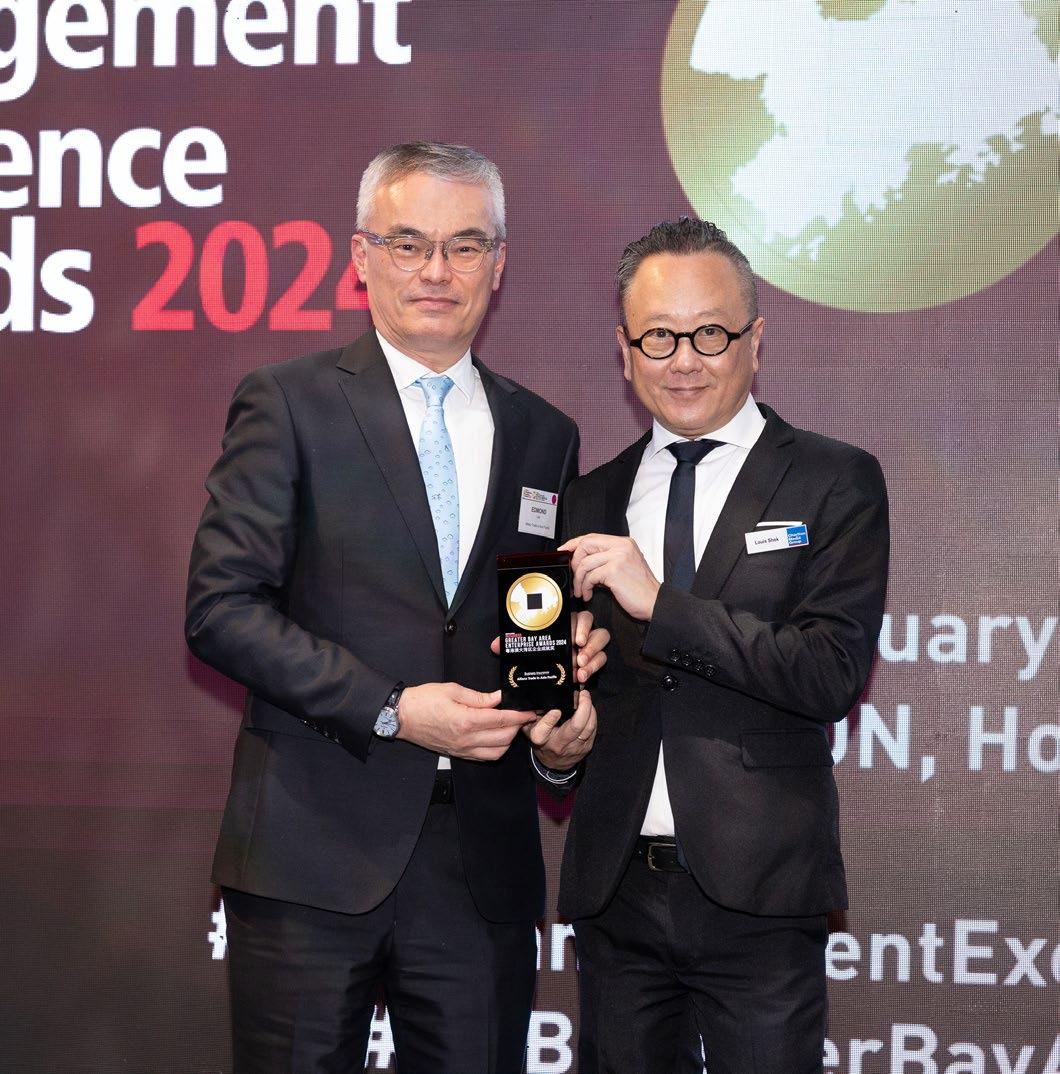
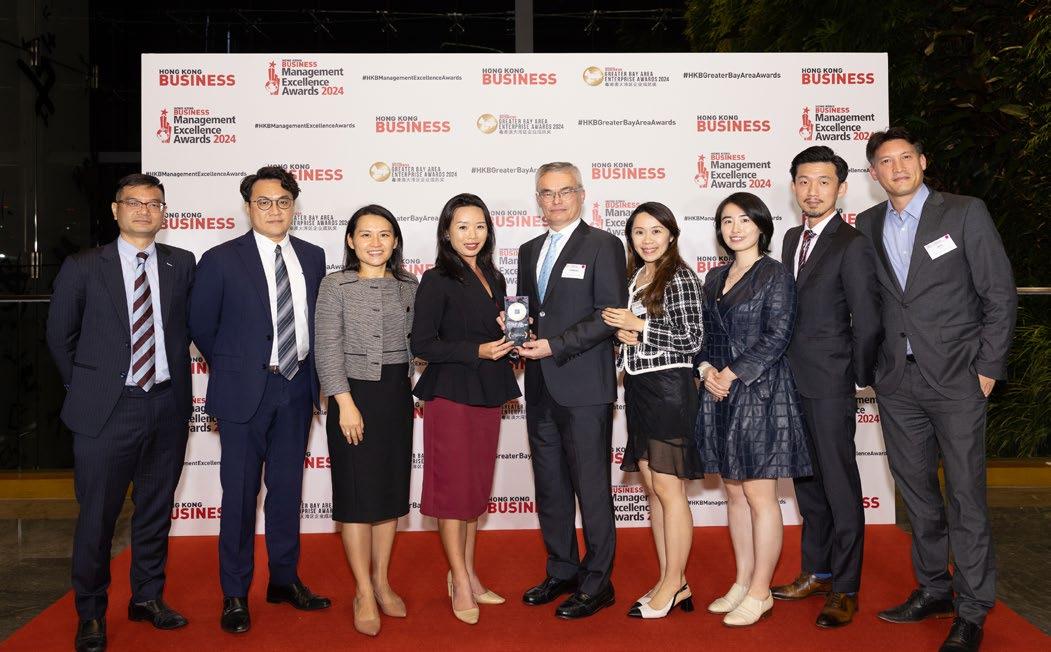
EVENT: HONG KONG BUSINESS AWARDS
Allianz Trade in Asia Pacific
Allianz Trade in Asia Pacific




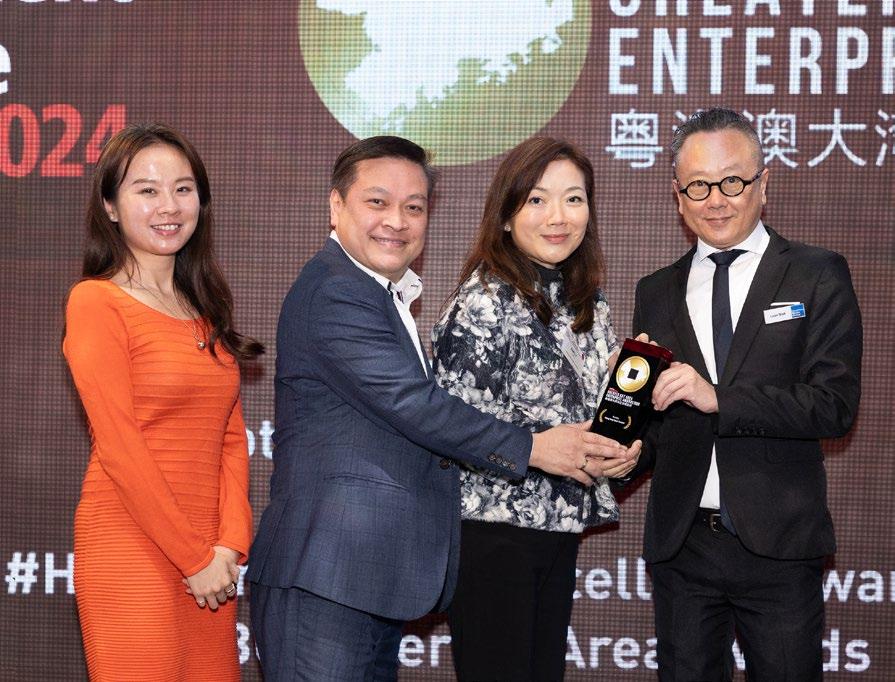


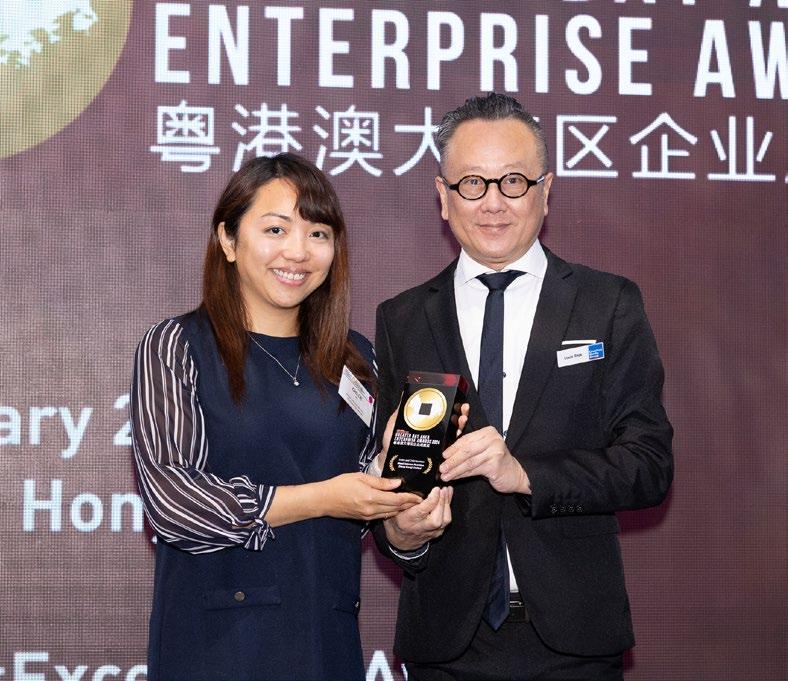
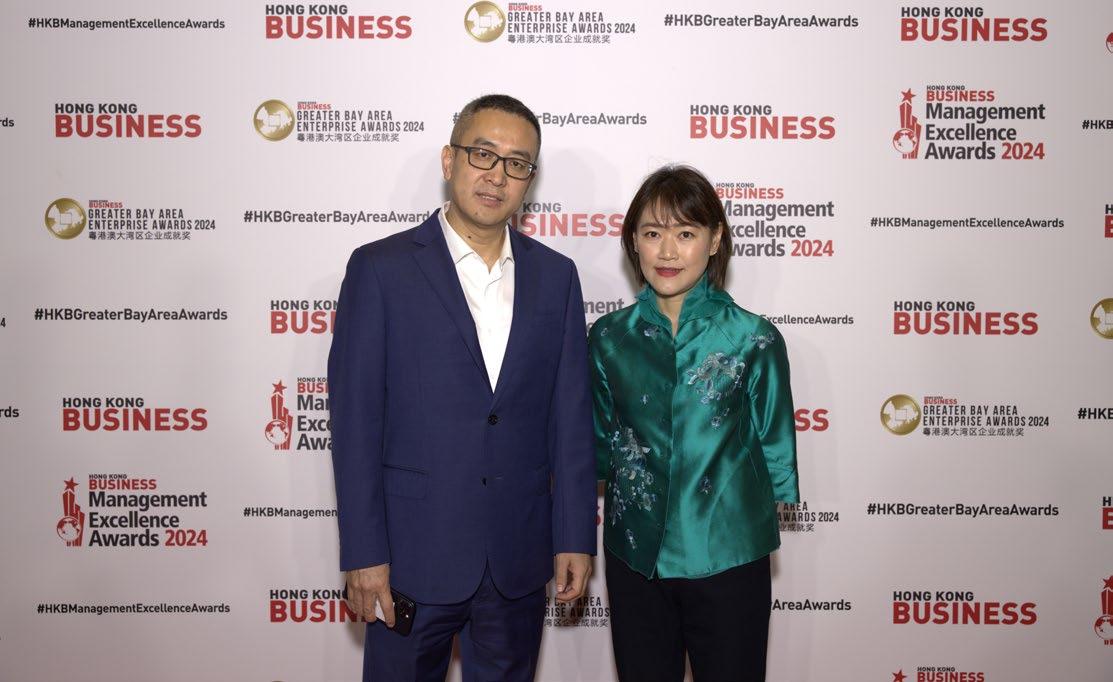
Manage ment Excellence Awards 2024
GienTech Technology (Hong Kong) Limited
Hang Seng Bank Limited
Mead Johnson Nutrition (Hong Kong) Limited
Sanofi
EVENT: HONG KONG BUSINESS AWARDS






 Shing Hing Plastic Manufacturing Limited
Vicon Construction Company Limited
Crawford (Hong Kong) Ltd.
Shing Hing Plastic Manufacturing Limited
Vicon Construction Company Limited
Crawford (Hong Kong) Ltd.


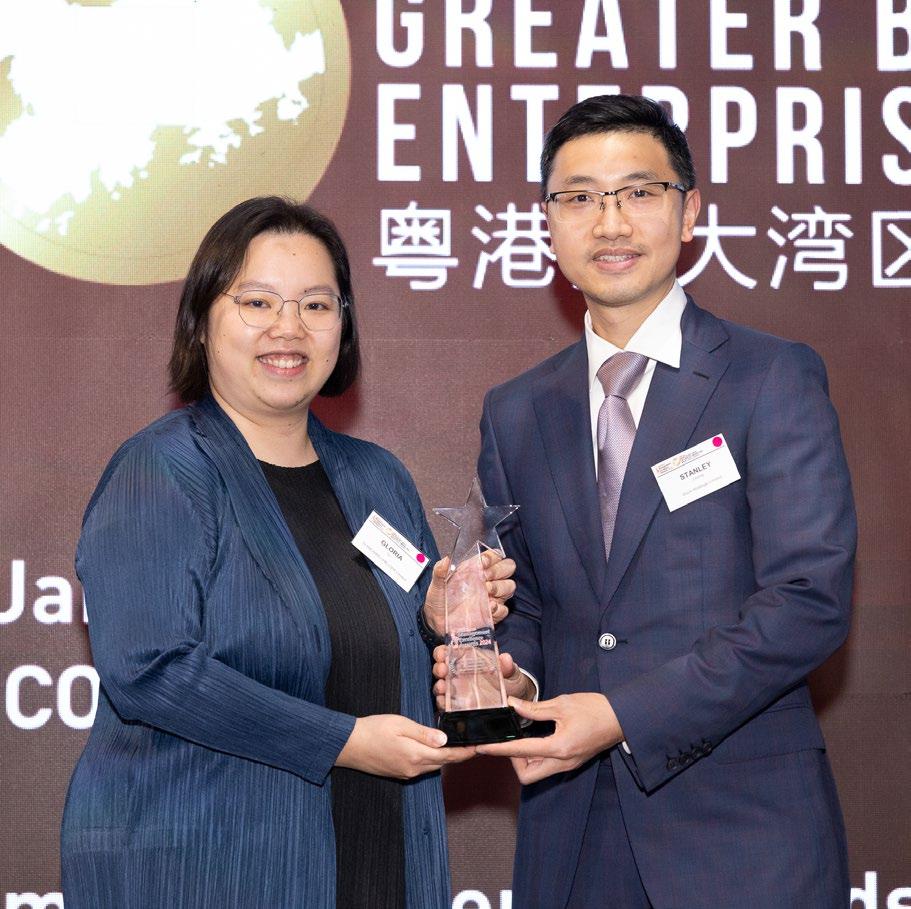




Manage ment Excellence Awards 2024
Manulife (Diversity, Equity & Inclusion (DEI) – Asia)
Paragon Trading Asia Limited
Vicon Holdings Limited
Gloria So of SW Hong Kong, awards judge
HKBMEA&GBA 2024 Winners Ivan Chan of Mazars, awards judge


Data Asset Operation Thinking and Practicing under the Guidance of Data Strategy
By: Zhengxiao DU, General Manager of Business Analytics Division, President of Data Development Committee, GienTech.

The concept that “ data is the core strategic asset of an enterprise” has become a consensus. Enterprises use data to drive digital transformation and realize the full release of data asset value. Under the guidance of a well-defined data strategy, data asset operation improves data quality, protects data security, and enhances the efficiency of business digitization by constructing a comprehensive and effective data resource transformation path. From the data demand side of the business, data asset operation promotes the deep integration of data and business by connecting the internal and external data of the enterprise, enriches the application scenarios of data assets, innovates the business model, and ultimately realizes the maximization of the business, economic and social values of the enterprise’s data assets.
1. Data asset operation is the inevitable result of mature data valorization and data management.
As people’s understanding of the value of data deepens, the scope of data asset management continues to expand, evolving through three distinct phases: the digitalization, regulation, and operationalization of data assets. In the data asset operation stage, the focus is on the realization of data value, and
the boundary of data use has changed from the internal enterprise to exploring the external transaction flow of data. At this stage, the emphasis is on enhancing the service efficiency of data assets, promoting the sharing and circulation of data, and facilitating the continuous release of data value.
As an emerging factor of production, data is a core strategic resource and a core driver of digital transformation. With a clear data-driven strategic vision, enterprises should formulate various capability initiatives in data regulation, data asset management and operation, and data application, to realize advanced enhancement from building a solid data foundation to unimpeded data sharing to value-added data empowerment.
2. The core of data asset operation is to perform effective control downward and promote value unleashing upward. The core of data asset operation can be summarized as: downward rooting and upward reaching. Rooted downwards, refers to the fact that data asset operation, as an important part of data asset management, needs to be guaranteed by a good data control system to avoid enterprises falling into the trap of “data swamp”. The
upward reaching means that data asset operation should always be guided by the data strategy blueprint, centered around the unleashing of data value, focusing on the satisfaction of data users, making the data trustworthy, visible, usable, and evaluable, and continually adapting to and satisfying the needs of internal and external stakeholders for various types of data assets, so as to make data assets the core competitiveness of the enterprise’s development.
3. Constructing a systematic Data Asset Operation solution that integrates “governance, clearing, utilization, activation and evaluation”.
With good data control as guarantee, through the establishment of normative data asset identification and inventory, enriching the asset use scene, and focusing on the freshness and circulation of assets, we realize closed-loop feedback and iterative optimization of supply and demand by means of operation, so as to change the “hoarding up” of data into “using up”, and continuously release business value. With more than 20 years of data asset management consulting and practice, and the successful implementation of nearly 100 projects, GienTech has systematically constructed the Data Asset Operation Platform, which meets the requirements of asset service diversification, operation analysis visualization, and AI-enabled technical empowerment. By providing diversified asset services, proactive data operation analysis, on-the-spot data asset diagnosis, and self-generated data asset labels, it comprehensively solves the problems faced by enterprises in the process of digitization, such as the difficulties in coordinating and managing business data, the difficulty in reading and finding data, the difficulty in applying data, and the inability to track data application scenarios.
Data asset operation will continue to become an important driving force for enterprises to realize digital transformation. GienTech has always been focusing on the innovative development of data asset operation, enhancing user experience with our service and activating asset value with our operation.
60 HONG KONG BUSINESS | Q2 2024
IT SERVICES
Data Asset Operation and Construction Program

Top Honours for Crawford
Crawford Hong Kong has been named a top employer at the 2024 HKB Management Excellence Awards!
Our people are empowered to grow, emboldened to act, and inspired to innovate. Right now, we’re looking for the next generation of leaders to come on the journey with us.
Consider a career with Crawford. Be part of something bigger. We’re people helping people. It’s that simple. www.crawco.com/careers
HONG KONG BUSINESS | Q2 2024 61
China upshifts into new growth drivers
Amidst China's ascent in EVs and renewable energy, businesses can secure growth by adopting Allianz Trade Mid-Size Multinational solution and mitigate risks in dynamic markets.

This decade has been difficult for China so far, with the effect of strict pandemic-control measures, a reeling real estate sector and a tenser geopolitical context. The economy has more or less powered through, in part thanks to accommodative public policies. But more policy support will be needed in the coming years to navigate structural adjustments in the economy and re-establish consumers’ and companies’ confidence. This will likely be in the form of measures with temporary boosts such as infrastructure projects and policy rate cuts, among others.
Having said that, Chinese cars have taken the world by storm in just a few years as the rapid expansion of electric vehicles (EVs) drives significant growth in auto sales both domestically and internationally.
Since the EV sector was targeted as a potential pillar of economic growth in 2009, the Chinese government has handed out generous incentives to encourage domestic EV manufacturing and purchases in the form of subsidies, tax breaks, public procurement and credits etc., which played a crucial role in the rapid development of the sector.
In the home market, sales of domestic brands recorded a CAGR of 23.4% over the last three years and accounted for more than half of all sales for the first time in 2023. Meanwhile, exports of passenger cars have increased substantially since 2020 from below 1mn units to 4.4mn units in 2023. This surge has led China to overtake Japan as the world’s largest passenger car exporter. Within the EV segment, China dominates with nearly 60%
of global EV sales and over 60% of total EV outputs in 2022. The market-leading position underscores China’s pivotal role in shaping the trajectory of the global EV industry and the broader automotive market landscape.
On the other hand, BYD, the world's largest EV exporter as well as a leading EV battery producer, managed to produce EVs at a much more affordable price as compared with its Western counterparts thanks to its high degree of vertical integration. As batteries represent the highest cost in producing an EV (about 40% of total costs), BYD’s expertise in lithium iron phosphate (LFP) batteries, a cheaper alternative to nickel manganese cobalt (NMC) batteries, enables it to achieve close to the highest energy density with among the lowest costs in the world. At the moment, China commands nearly 56% of the global EV battery market share.
Thirdly, despite its status as one of the world's largest carbon emitters, China has made spectacular achievements in renewables, part of a strategy that balances economic expansion with sustainable development. Thanks to a strong vertical integration, China created a leading solar industry that was able to produce the most and sell at the cheapest price. When Europe or the US imposed tariffs, China managed to quickly pivot towards its domestic market. As a result,
China accounts for more than 80% of the global solar module manufacturing capacity and more than 80% of solar cell exports. China's dominant position in these sectors is not just a matter of volume but also reflects its grip on the entire supply chain – from mining critical materials (e.g. graphite, lithium, cobalt, etc.) to refining them to manufacturing the batteries. Beyond batteries for EVs, the energy transition will also push up demand for large industrialscale energy storage and China will account for a large share of this.
Allianz Trade Mid-Size Multinational solution
Given the uncertainties ahead in 2024, there is no better time to protect your business while seizing future growth opportunities. Trade credit insurance is one of the most popular and accessible risk-mitigating measures when it comes to conducting business with peace of mind. Fitted for China-Hong Kong companies, Allianz Trade Mid-Size Multinational solution can help them to expand domestic markets in China and international trade markets. Customers benefit from a dedicated team of specialist underwriters, centralised programme handlers and claims experts. Talk to us today to understand more.

Fitted for China-Hong Kong companies, Allianz Trade Mid-Size Multinational solution can help them to expand domestic markets in China and international trade markets
62 HONG KONG BUSINESS | Q2 2024
BUSINESS INSURANCE
To Nourish the Best Start In Life: Mead Johnson Nutrition wins Infant and Child Nutrition Award
The HK Enfinitas brand has gained 64% more early-stage users since the product was launched, underscoring its commitment to innovation and science-backed nutrition.

Infants and children deserve the best nutrition, and science-backed innovations play a key role in ensuring they receive safe, effective, and tailored solutions. By harnessing scientific research, these advancements not only promote healthy growth but also give parents and healthcare professionals the confidence and peace of mind that they need to nurture the well-being of little ones.
Mead Johnson Nutrition Hong Kong (“Mead Johnson”) has effectively provided quality nutrition for young ones as it captured consumer trends and needs with the new HK Enfinitas, inspired by breastmilk.
Mead Johnson brought home the win in the Infant and Child Nutrition category at the HKB Greater Bay Area Enterprise Awards 2024. The company’s triumph stems from its groundbreaking innovation in the upgraded relaunch of its HK Enfinitas brand, which aligns with its purpose of nurturing the best start in life for infants and children.
Optimal Nutrition, Inspired Innovation
At the core of the HK Enfinitas brand is a commitment to offering consumers in the Greater Bay Area high-quality nutrition products inspired by the natural benefits of breastmilk whilst supporting babies’ optimal growth and development. It also aims to provide consumers with high-quality infant and child nutrition products in the most professional and scientific ways.
As part of its mission, Mead Johnson has relaunched the upgraded version of HK Enfinitas, leveraging world-leading global scientific research on breastmilk. This innovative new range contains 37 times of colostrum essence, including HMO, Lactoferrin and MFGM, providing the best
immunity for babies and helping mums extend their love to babies. The success and impact of HK Enfinitas in the market have been remarkable. The brand has garnered positive word-ofmouth and consumer recommendations on popular platforms such as WeChat, Xiaohongshu, TikTok, and baby-focused social channels. Search traffic for the brand has increased by 29%, reflecting its growing popularity.
Rising Consumer Confidence & Health Impact
Consumer surveys also showed positive results for HK Enfinitas, with a particularly enthusiastic response from consumers in the Guangdong provinces. In a survey conducted in September 2023, an impressive 96% of respondents expressed interest in continuing to use the product following its trial period, having reported high satisfaction levels for the product’s key ingredients.
The project has also enhanced consumer perception, with a reported 47% improvement in immunity and 8% closeness to the natural benefits of breast milk. Additionally, Mead Johnson has received glowing feedback from health professionals and experts who have endorsed the safety and efficacy of its products.
The HK Enfinitas brand looks forward to creating more value for more consumers as well, as the company has seen a 64% increase
in early-stage users since the launch.
“We are proud to see significant improvements in brand awareness and loyalty,” stated Chloe Ko, Marketing & Acquisition Director and Co-Head of Cross Border, Hong Kong & Taiwan of Mead Johnson Nutrition (Hong Kong) Limited. “We are confident that our ongoing efforts will continue to create value for our consumers, our company, and society as a whole, enabling us to fulfil our purpose of nourishing the best start in life.”
Advancing Early Life Nutrition & Regional Excellence
As Mead Johnson continues to establish itself as a leader in quality, safety, and efficacy through HK Enfinitas, its dedication to providing infants and children with the best start in life remains unwavering. With an ongoing commitment to scientific research and innovation, Mead Johnson’s journey continues to inspire confidence and trust.
The HKB Greater Bay Area Enterprise Awards, presented by the Hong Kong Business Magazine, is a prestigious event that recognises the achievements of companies based in Hong Kong and Macau within the Greater Bay Area. It celebrates exceptional projects and initiatives that foster regional collaboration, investment, and development whilst demonstrating successful economic impact for the advancement of the Greater Bay Area.
This year’s winning companies were applauded in a prestigious in-person awards presentation held at Hotel ICON on 31 January 2024.

We are confident that our ongoing efforts will continue to create value for our consumers, our company, and society as a whole, enabling us to fulfil our purpose of nourishing the best start in life
HONG KONG BUSINESS | Q2 2024 63
INFANT AND CHILD NUTRITION
HANNAH JEONG OPINION
Navigating challenges and seizing opportunities in Hong Kong’s self-storage sector
Local players like SC Storage capitalised on this demand, taking advantage of the significant rental gap between old industrial premises and self-storage facilities. However, the industry faced a turning point when a deadly fire occurred at an SC Storage facility in Ngau Tau Kok in 2016 that started in a self-storage unit.
The blaze resulted in more stringent regulations and safety requirements for self-storage operators. The industry underwent a period of restructuring and consolidation as operators adapted to the new regulatory environment.
The fourth stage of the sector’s development coincided with the COVID-19 pandemic. Despite the challenging circumstances, the market experienced rapid expansion with increased merger and acquisition activity. Institutional investors like Blackstone, Brookfield, and Warburg Pincus recognised the market’s potential and actively supported its growth.
Prominent players in the sector include Storefriendly, SC Storage, Apple Storage, and StorHub. Notably, Storefriendly and StorHub are multinational companies offering full-service facilities, including typical mini-storage, wine cellars, supplementary sales counters, and a pantry area with complimentary drinks. They differentiate themselves from smaller competitors by providing industry-leading customer service and incorporating human-centric design elements into their facilities.
Financial implications and opportunities
Investing in self-storage compared to traditional industrial premises presents significant financial differences. Whilst there is a substantial rental gap between old industrial premises and self-storage facilities, operating costs and the level of management expertise required vary.
To examine the differences, a multi-scenario analysis has been conducted to compare the profitability of investing in traditional industrial units versus self-storage
Assuming an industrial unit with a GFA of 15,000 sq. ft. is acquired at HK$4,000 psf, and let at HK$12.3 per sq. ft. based on GFA and the prevailing market rent, it could generate a Net Operating Income (NOI) yield on cost of 3.4%.
On the other hand, if an investor needed an additional HK$450 psf in Capex to convert the premises into self-storage space, the venture would need 60% occupancy to generate superior returns compared to typical industrial investments because of the fixed overhead costs –management expenses, sales, and marketing – the lower NOI margins and space efficiency associated with self-storage.
However, there are significant opportunities for investors. In mature markets like the US, self-storage facilities enjoy stabilised occupancy of 90%. If HK self-storage space achieves a similar occupancy level, it could see an 80% increase in NOI and a NOI yield on cost of more than 5%, which is unparalleled to most Hong Kong asset classes.
The scenario above illustrates the possibilities of a single floor; operational efficiency would improve with a larger floorplate or en-bloc property, whilst the leasing risks will increase proportionally. However, this example also serves as a simple indication of increased profitability
 HANNAH JEONG head of Valuation & Advisory Services Colliers Hong Kong
HANNAH JEONG head of Valuation & Advisory Services Colliers Hong Kong
as the market matures.
Furthermore, Hong Kong’s market size suggests that there is still untapped demand compared to other mature markets, presenting opportunities for further growth. Additionally, there may be a potential for repricing in terms of cap rate expectations as the market develops, attracting investors with the prospect of significant yield spreads compared to traditional industrial premises.
Operational, legal, and liquidity risks
Despite the potential and positive outlook, investing in self-storage is not without its challenges. Operational risks are significant. The shorter-term tenures result in greater income volatility compared to longer-term leases.
The industry is also highly fragmented, leading to fierce competition among operators. Providing extensive customer services, such as assistance with moving and storage logistics, is essential to attract and retain customers, but it adds operating costs.
Legal risks are also a challenge. Investors and Operators must heed the relevant Land Control, DMC, planning restrictions and building and fire safety regulations.
In terms of land grant restriction, If a Government Grant stipulates “industrial and / or godown use” or solely “godown use”, using the space for mini-storage does not breach the terms of the grant. However, self-storage is not permitted if the government grant only allows for” “industrial use”, “workshops,” or “factories”, as these uses typically refer to manufacturing rather than storage.
To avoid the Lands Department taking lease-enforcement action – such as registering encumbrances against the property’s title or even re-entry – owners can apply for a short-term waiver or a lease modification upon payment of the land premium. We suggest that investors perform thorough due diligence and engage a professional surveyor to make informed investment decisions.
Liquidity risks exist, particularly in smaller-scale operations. The lack of well-established management companies limits investors’ ability to outsource management roles whilst receiving stable returns, restricts small-to-medium-scale investors’ market entry and reduces asset liquidity.
Promise for forward-thinking investors
Given the significant fixed overheads and space efficiency shortcomings compared to traditional industrial investment, operators have rolled out initiatives and the latest technology to lower admin and staff costs. For example, Storefriendly has introduced Storefriendlygo – the first robot technology for self-storage in Hong Kong – which enables better space optimisation and increases space efficiency by reducing corridor space to effectively maximise the number of storage units within a given area.
Hong Kong’s self-storage market is expected to continue its period of consolidation for the next few quarters. Operators and investors will focus on cost-effectiveness, deploying technology to enhance efficiency.
64 HONG KONG BUSINESS | Q2 2024

ARE YOU LEAVING A LEGACY OR A TAX BURDEN FOR YOUR LOVED ONES?
British Nationals are exposed to IHT on worldwide assets and could be taxed at 40%*. All Nationalities with UK assets are subject to IHT on death**. PROPERTY INVEST MENTS STOCKS
Soteria Trusts utilise bespoke solutions to protect your wealth and legacy, such as:
Trusts Accounts
International Retirement Planning
Stamp Duty Land Tax Refunds
* ** Subject to individual domicile and marital status. IHT is charged at 40% on net estate value above the Nil Rate Bands of £325k & £650k for singles and couples.
HONG KONG BUSINESS | Q2 2024 3
| Tel: +852 2168 0626 | enquiries@soteriatusts.com
www.soteriatrusts.com
MULTI-GENERATIONAL ESTATE PLANNING
ART CASH £ £
us for
www.soteriatrusts.com
Contact
a FREE Tax Review


4 HONG KONG BUSINESS | Q2 2024























































































































































 Billy Hui
Billy Hui


























 by Noreen Jazul
by Noreen Jazul







































































 Shing Hing Plastic Manufacturing Limited
Vicon Construction Company Limited
Crawford (Hong Kong) Ltd.
Shing Hing Plastic Manufacturing Limited
Vicon Construction Company Limited
Crawford (Hong Kong) Ltd.














 HANNAH JEONG head of Valuation & Advisory Services Colliers Hong Kong
HANNAH JEONG head of Valuation & Advisory Services Colliers Hong Kong


